#lecture
19
Feb
AI Keynote Series
5:00 pm - 6:30 pm
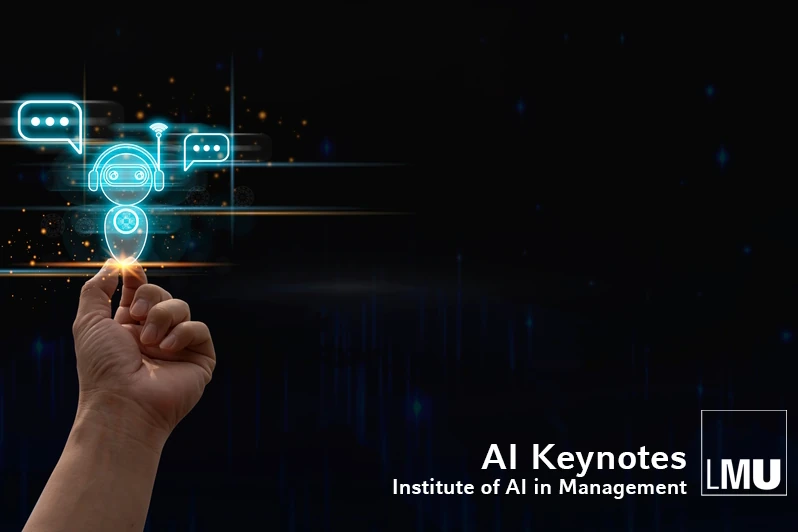
©jittawit.21 - stock.adobe.com
AI Keynote Series • 19.02.2026 • Online via zoom
5:00 pm - 6:30 pm
Using New Data to Answer Old Questions
Emma Pierson, UC Berkeley
The explosion of new data sources has created new opportunities, and necessitated new machine learning methods, to answer old questions in the health and social sciences. This talk discusses three …
19
Feb
Online Seminar
3:30 pm - 4:30 pm
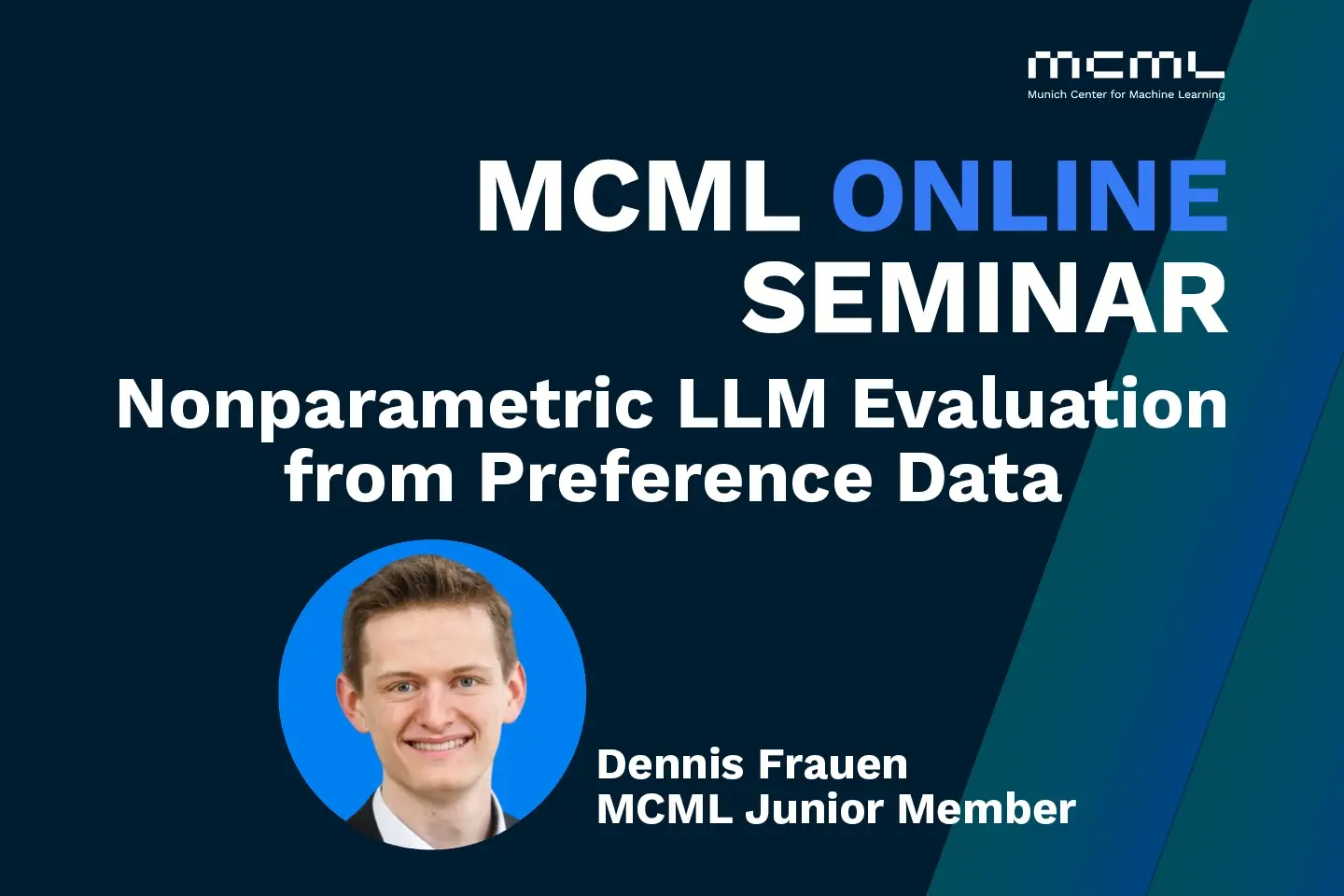
Online Seminar • 19.02.2026 • Online
3:30 pm - 4:30 pm
MCML Online Seminar
Nonparametric LLM Evaluation From Preference Data
The MCML online seminar series is an opportunity for MCML members to share recently accepted papers, preprints or ongoing research. The seminars consist of a presentation followed by Q&A. In this …
12
Feb
AI Keynote Series
5:00 pm - 6:30 pm

©jittawit.21 - stock.adobe.com
AI Keynote Series • 12.02.2026 • Online via zoom
5:00 pm - 6:30 pm
Learning From Informatively Missing Outcomes
Ruoxuan Xiong, Data & Decision Sciences, Emory University
Missing outcomes are widespread in modern data systems, such as in healthcare or on AI platforms, and often do not occur randomly. Frequently, the missing data depends on the unobserved outcome itself …
12
Feb
Munich AI Lectures
5:00 pm - 8:00 pm
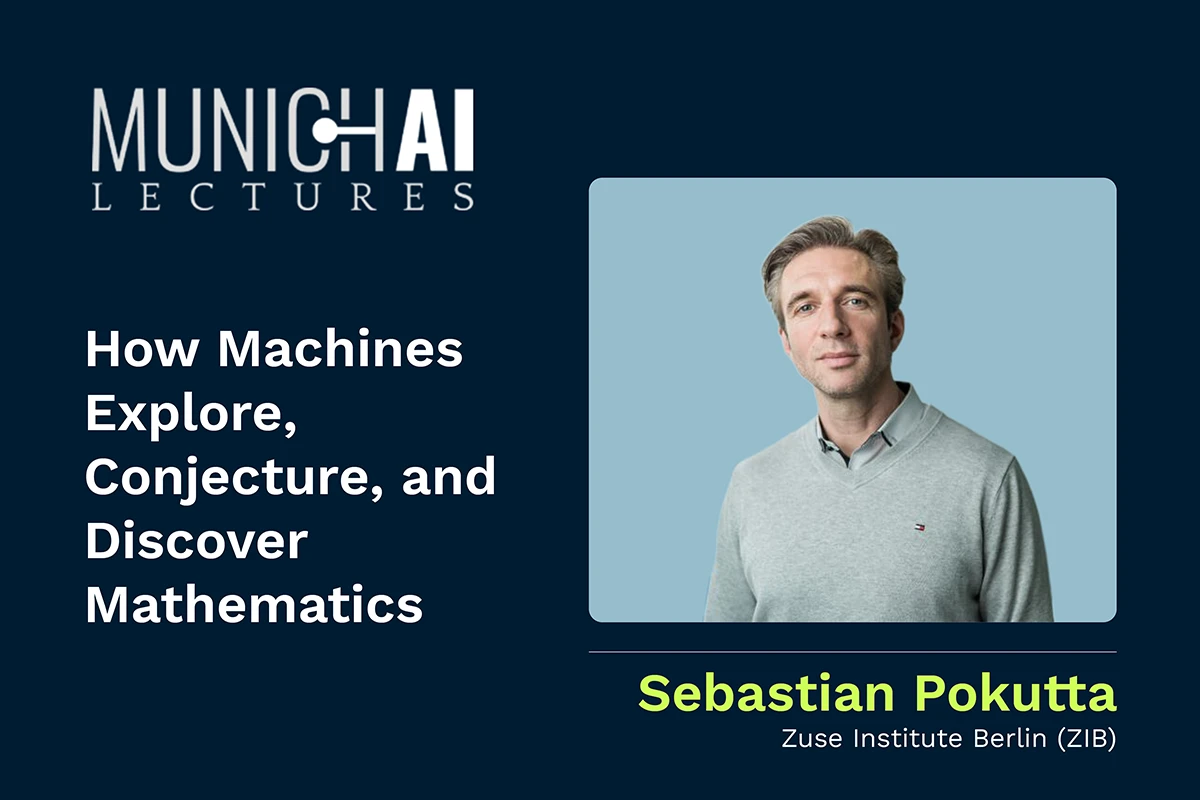
Munich AI Lectures • 12.02.2026 • LMU Munich, Main Building, Room D209
5:00 pm - 8:00 pm
How Machines Explore, Conjecture, and Discover Mathematics
Sebastian Pokutta, Zuse Institute Berlin (ZIB)
On Febuary 12, 2026, the next Munich AI Lecture will welcome Sebastian Pokutta from Zuse Institute Berlin (ZIB).
04
Feb
Colloquium
4:15 pm - 5:45 pm
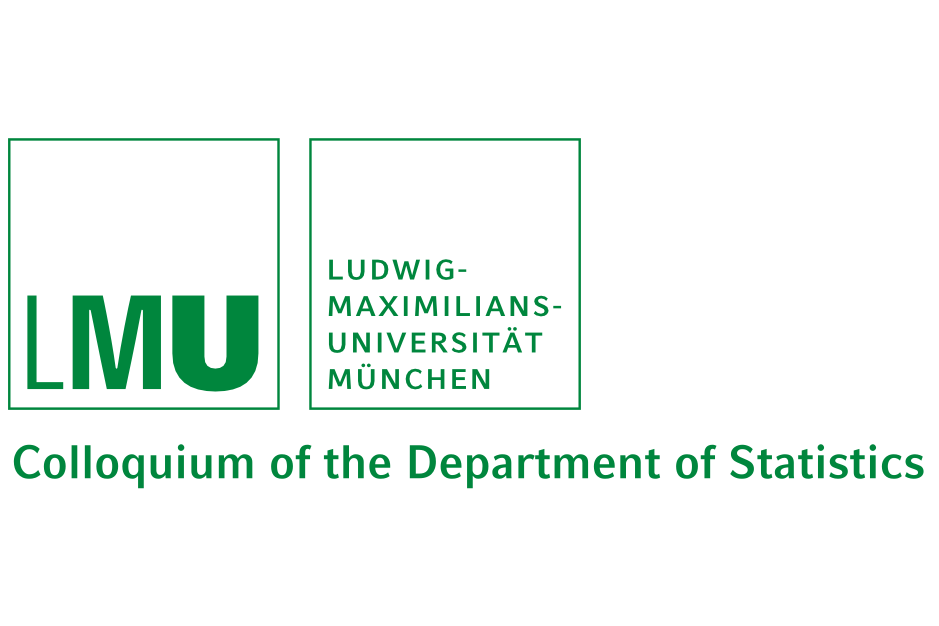
Colloquium • 04.02.2026 • LMU Munich, Department of Statistics and via zoom
4:15 pm - 5:45 pm
Large Language Models for Statistical Inference: Context Augmentation With Applications to the Two-Sample Problem and Regression
Marc Ratkovic, University of Mannheim
The colloquium introduces context expansion, an approach that uses large language models to generate additional contexts around strings to enable valid statistical inferences. These contexts reduce …
29
Jan
Munich AI Lectures
3:00 pm - 4:00 pm
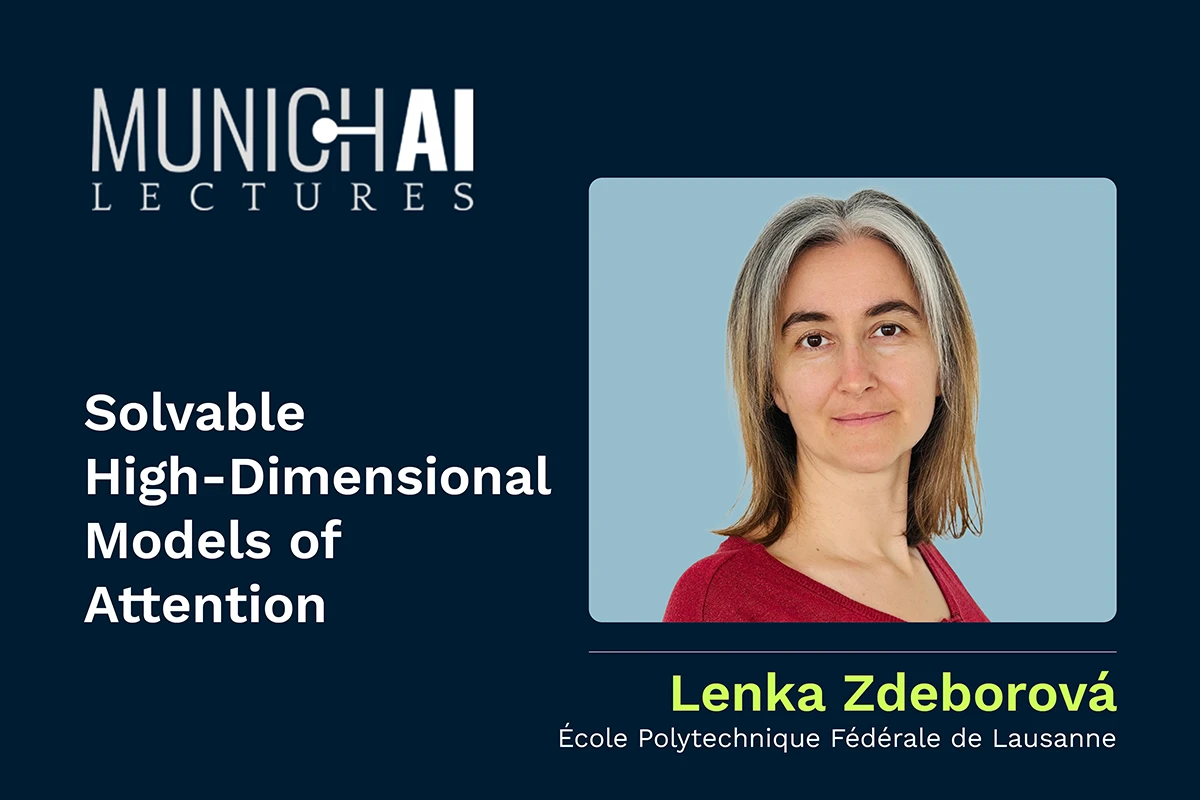
Munich AI Lectures • 29.01.2026 • TUM, Campus Munich, Theresienstr. 90, Room 0101.Z1.090
3:00 pm - 4:00 pm
Solvable High-Dimensional Models of Attention: A Theory of Generalization on Token Sequences
Lenka Zdeborova, École Polytechnique Fédérale De Lausanne (EPFL)
On January 29, 2026, the next Munich AI Lecture will welcome Lenka Zdeborová from École Polytechnique Fédérale de Lausanne (EPFL).
14
Jan
Colloquium
4:15 pm - 5:45 pm

Colloquium • 14.01.2026 • LMU Munich, Department of Statistics and via zoom
4:15 pm - 5:45 pm
Achieving Socio-Economic Parity Through the Lens of EU AI Act
Eirini Ntoutsi, UniBW München
This lecture addresses unfair treatment and discrimination as central ethical problems of AI systems and situates them within the context of the EU AI Act, which aims to promote innovation while …
08
Jan
AI Keynote Series
5:00 pm - 6:30 pm

©jittawit.21 - stock.adobe.com
AI Keynote Series • 08.01.2026 • Online via zoom
5:00 pm - 6:30 pm
Causal Inference With Deep Generative Models
Murat Kocaoglu, Department of Computer Science, Johns Hopkins University
Causal knowledge is central to solving complex decision-making problems in many fields, from engineering and medicine to cyber-physical systems. Causal inference has also recently been identified as a …
10
Dec
Colloquium
4:15 pm - 5:45 pm

Colloquium • 10.12.2025 • LMU Munich, Department of Statistics, Ludwigstr. 33, Room 144
4:15 pm - 5:45 pm
Program Evaluation With Remotely Sensed Variables
Davide Viviano, Harvard University
Economists often use remote sensing variables (RSVs), such as satellite imagery, to estimate treatment effects in experiments when direct economic measurements are lacking. The usual method of …
20
Nov
AI Keynote Series
4:00 pm - 5:30 pm

©jittawit.21 - stock.adobe.com
AI Keynote Series • 20.11.2025 • Online via zoom
4:00 pm - 5:30 pm
Distilling Heterogeneous Treatment Effects: Stable Subgroup Estimation in Causal Inference
Melody Huang, Political Science and Statistics & Data Science, Yale University
Recent methodological developments have introduced new black-box approaches to better estimate heterogeneous treatment effects; however, these methods fall short of providing interpretable …
13
Nov
AI Keynote Series
12:00 pm - 1:30 pm

©jittawit.21 - stock.adobe.com
AI Keynote Series • 13.11.2025 • Online via zoom
12:00 pm - 1:30 pm
Personalized Care Through Causal & Federated Learning: From Data to Decisions
Julie Josse, French National Institute for Research in Digital Science and Technology (Inria)
Generalization methods offer a powerful solution to one of the key drawbacks of randomized controlled trials (RCTs): their limited representativeness. By enabling the transport of treatment effect …
12
Nov
Colloquium
4:15 pm - 5:45 pm

Colloquium • 12.11.2025 • LMU Munich, Department of Statistics and via zoom
4:15 pm - 5:45 pm
Causal Inference Based on Machine Learning for Complex Longitudinal Exposures
Iván Diaz and Herb Sussman, New York University
Colloquium of the Department of Statistics with Iván Diaz and Herb Sussman from the New York University about Causal Inference Based on Machine Learning for Complex Longitudinal Exposures.
23
Oct
Munich AI Lectures
6:00 pm - 9:00 pm

Munich AI Lectures • 23.10.2025 • BAdW, Alfons-Goppel-Str. 11, Munich
6:00 pm - 9:00 pm
Avoiding Catastrophic Risks From Uncontrolled AI Agencies
Prof. Yoshua Bengio, Université De Montréal
On October 23, 2025, the next Munich AI Lecture will welcome Yoshua Bengio (Université de Montréal, Mila), A.M. Turing Award laureate and one of world’s most cited computer scientist.
15
Oct
Colloquium
4:15 pm - 5:45 pm

Colloquium • 15.10.2025 • LMU Munich, Department of Statistics and via zoom
4:15 pm - 5:45 pm
Estimation of Finite Population Proportions for Small Areas - A Statistical Data Integration Approach
Partha Lahiri, University of Maryland
Empirically best prediction (EBP) is used to estimate proportions in small or incomplete populations, but often encounters practical limitations such as missing auxiliary variables or incomplete data …
13
Oct
Lecture
6:00 pm - 9:00 pm
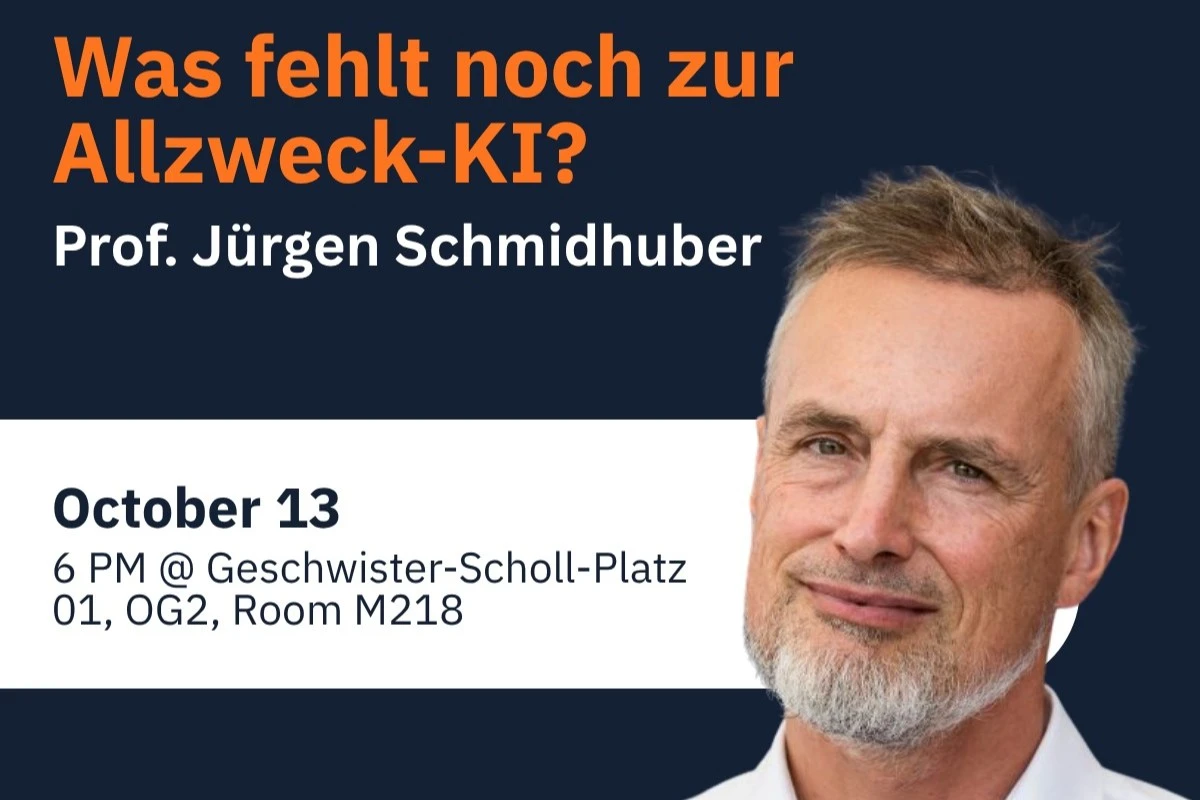
Lecture • 13.10.2025 • LMU Munich, Main Building, Room M218
6:00 pm - 9:00 pm
What Is Still Missing for General AI?
Prof. Jürgen Schmidhuber, King Abdullah University of Science and Technology
On October 13, 2025, Jürgen Schmidhuber will give a lecture exploring the question of what is still missing to achieve true general artificial intelligence. The talk will offer deep insights into …
09
Sep
Munich AI Lectures
4:00 pm - 6:00 pm

Munich AI Lectures • 09.09.2025 • TU Munich, Georg-Brauchle-Ring 58, Room M001
4:00 pm - 6:00 pm
Robots Making Contact With an Uncertain World
Aaron M. Johnson, Carnegie Mellon University
On 9 September 2025, Aaron M. Johnson will give a talk as part of the Munich AI Lectures series. The lecture, titled “Robots Making Contact with an Uncertain World” shares fascinating …
21
Jul
Munich NLP Meetup
6:00 pm - 10:00 pm

Munich NLP Meetup • 21.07.2025 • Versicherungskammer Bayern, Warngauer Str. 30, Munich
6:00 pm - 10:00 pm
Legal NLP in Insurance
Transforming Insurance With AI
The Munich NLP Meetup is a community of AI enthusiasts, researchers, and professionals who regularly meet to discuss the latest developments in natural language processing and artificial intelligence. …
17
Jul
Munich AI Lectures
5:00 pm - 7:00 pm
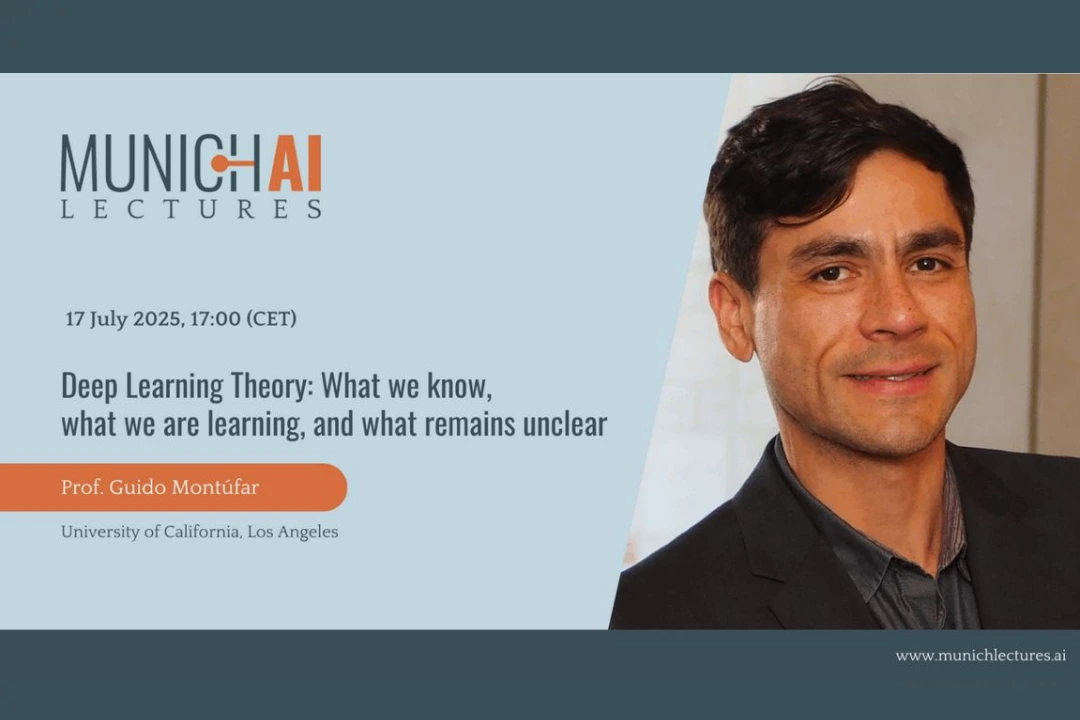
Munich AI Lectures • 17.07.2025 • LMU Munich, Main Building, Room B006
5:00 pm - 7:00 pm
Deep Learning Theory: What We Know, What We Are Learning, and What Remains Unclear
Prof. Dr. Guido Montúfar, UCLA
On 17 July 2025, Guido Montúfar will give a talk as part of the Munich AI Lectures series. The lecture, titled “Deep Learning Theory: What we know, what we are learning, and what remains …
09
Jul
Munich AI Lectures
6:30 pm - 9:00 pm
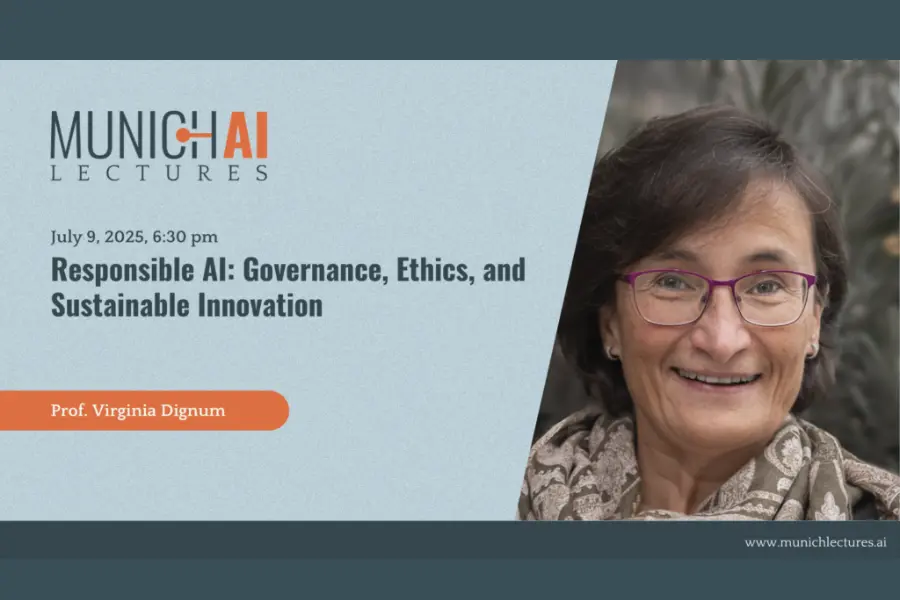
Munich AI Lectures • 09.07.2025 • BAdW, Alfons-Goppel-Str. 11, Munich, Plenarsaal
6:30 pm - 9:00 pm
Foundational Methods for Foundation Models for Scientific Machine Learning
Prof. Dr. Virginia Dignum, Umeå University
The next edition of the Munich AI Lecture series will take place on Wednesday, July 9, 2025, at 6:30 PM in the Plenarsaal of the Bavarian Academy of Sciences and Humanities in Munich.
08
Jul
Lecture
12:15 pm - 1:45 pm
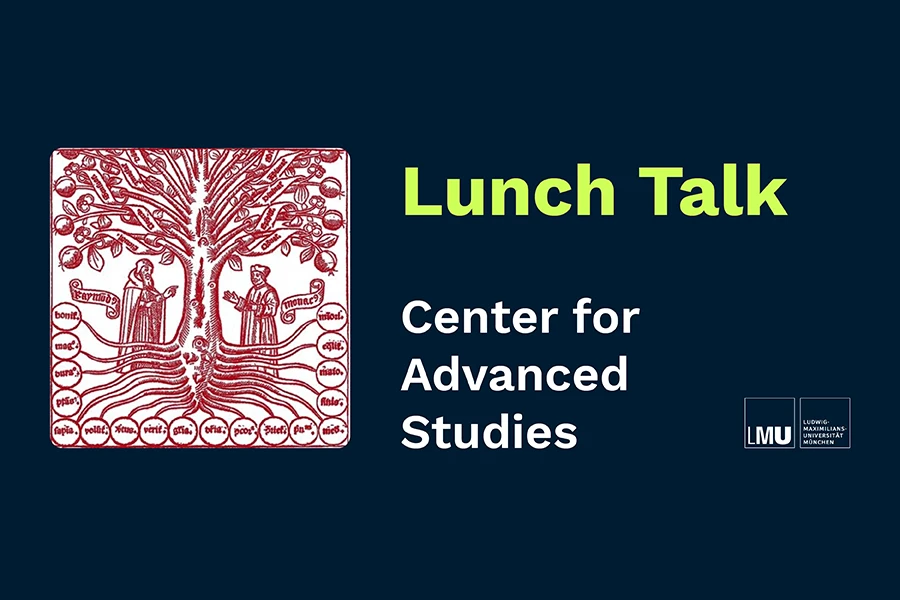
©CAS/LMU
Lecture • 08.07.2025 • LMU Munich, CAS, Seestr. 13
12:15 pm - 1:45 pm
Lunch Talk: Understanding of Non-Verbal Behavior by Multimodal AI Systems
With MCML Members Philipp Wicke and Sven Mayer
In this talk the Understanding of Non-Verbal Behavior by Multimodal AI Systems will be discussed. Speaker: Philipp Wicke
(MCML/LMU)
Respondent: Sven Mayer
(MCML/LMU) Only with registration!
26
Jun
Lecture
6:30 pm - 9:00 pm
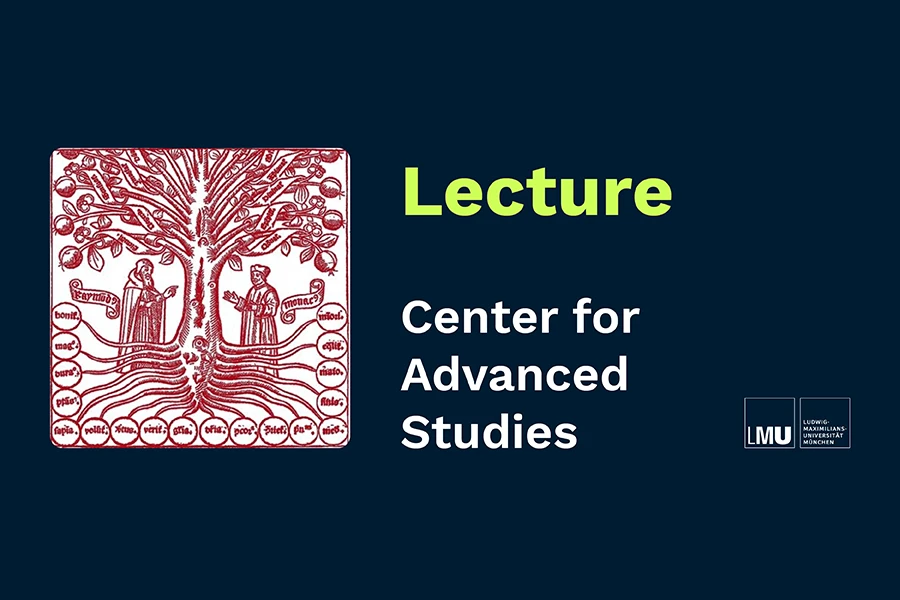
Lecture • 26.06.2025 • LMU Munich, CAS, Seestr. 13, Munich
6:30 pm - 9:00 pm
Bayesian Insights on Polarization and Disagreement
Prof. Leah Henderson, Ph.D. (CAS Fellow/Groningen)
As part of the CAS Research Focus “Bayesian Reasoning: A Grammar of Science?”, the Center for Advanced Studies (CAS) is hosting a lecture by Leah Henderson from the University of Groningen.
25
Jun
Colloquium
4:15 pm - 5:45 pm

Colloquium • 25.06.2025 • LMU Munich, Department of Statistics and via zoom
4:15 pm - 5:45 pm
Practical Causal Reasoning as a Means for Ethical ML
Isabel Valera, Uni Saarbrücken
In this talk I will give an overview of the role of causality in ethical machine learning, and in particular, in fair and explainable ML. In particular, I will first detail how to use causal reasoning …
11
Jun
Colloquium
4:15 pm - 5:45 pm

Colloquium • 11.06.2025 • LMU Munich, Department of Statistics and via zoom
4:15 pm - 5:45 pm
Veridical Data Science and PCS Uncertainty Quantification
Bin Yu, Berkeley
Data Science is central to Al and has driven most of the recent advances in biomedicine and beyond. Human judgment calls are ubiquitous at every step of the data science life cycle (DSLC): problem …
04
Jun
Colloquium
4:15 pm - 5:45 pm

Colloquium • 04.06.2025 • LMU Munich, Department of Statistics and via zoom
4:15 pm - 5:45 pm
Democratizing Methods
Jennifer Hill, New York University
The past few decades have seen an explosion in the development of freely available software to implement statistical methods and algorithms to help explore and analyze data. However, researchers tend …
27
May
Lecture
10:00 am - 11:00 am
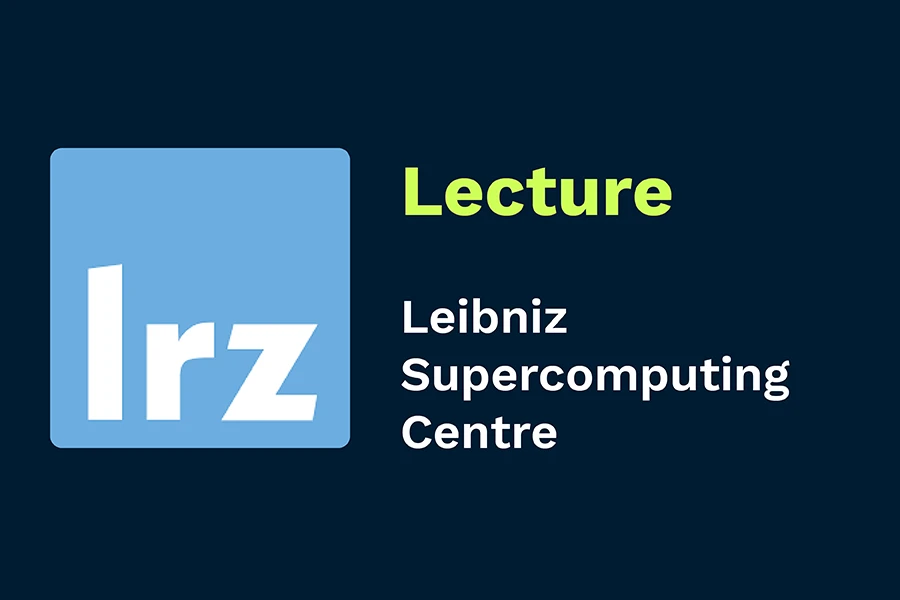
Lecture • 27.05.2025 • LRZ, Boltzmannstr. 1, Garching and Meet (Hybrid)
10:00 am - 11:00 am
Talk With Matthias Wendland
„Regulatory Readiness Under the AI Act: Operating AI at Scale With HPC Infrastructures as Emerging AI Factories"
The talk will explore how the AI Act may affect institutions operating large-scale AI systems, with a particular focus on HPC centers. He’ll highlight how regulatory requirements intersect with …
14
May
Colloquium
4:15 pm - 5:45 pm

Colloquium • 14.05.2025 • LMU Munich, Department of Statistics and via zoom
4:15 pm - 5:45 pm
Robustness in Semiparametric Statistics
Rajen Shah, University of Cambridge
Given that all models are wrong, it is important to understand the performance of methods when the settings for which they have been designed are not met, and to modify them where possible so they are …
24
Apr
Meetup
5:30 pm - 8:30 pm
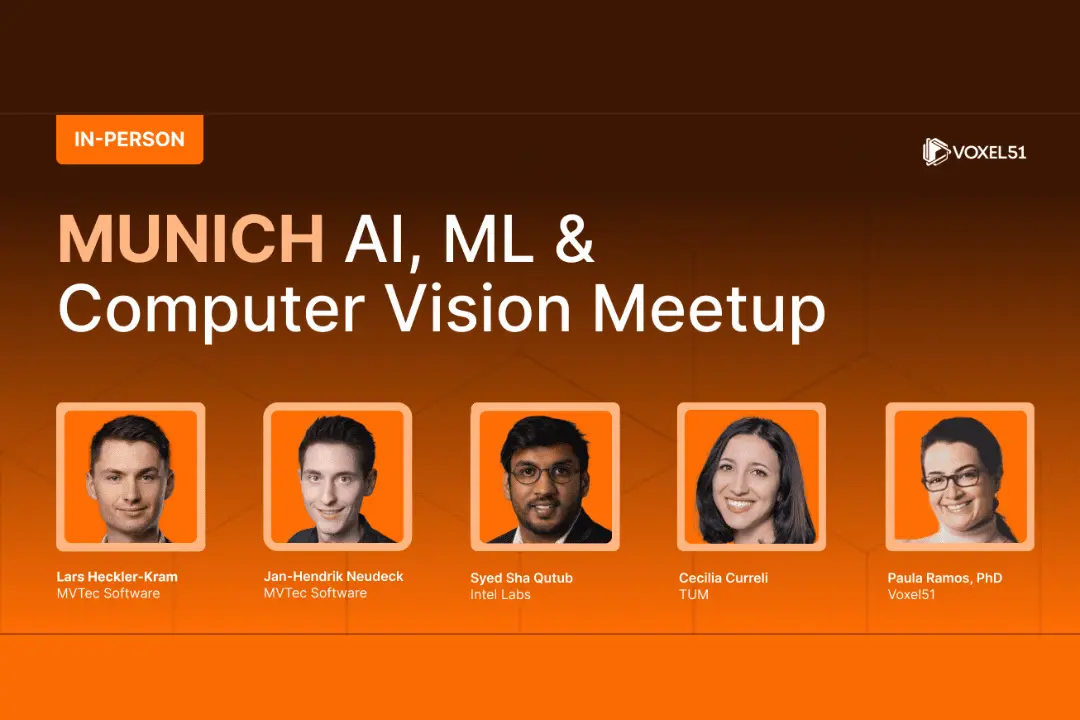
©voxel51
Meetup • 24.04.2025 • Impact Hub Munich, Gotzinger Str. 8
5:30 pm - 8:30 pm
Munich AI, Machine Learning and Computer Vision Meetup
Cecilia Curreli, MCML
On April 24, 2025, the Munich AI, ML, and Computer Vision Meetup will take place at Impact Hub Munich. The event will feature talks from experts on cutting-edge topics in AI, machine learning, and …
23
Apr
Colloquium
4:15 pm - 5:45 pm

Colloquium • 23.04.2025 • LMU Munich, Department of Statistics and via zoom
4:15 pm - 5:45 pm
Story-Led Causal Inference
Jessica Young, Harvard University
The modern causal inference literature has expressed a deep divide over the nature of the so-called consistency condition. Consistency is popularly characterized as the condition that …
01
Apr
Lecture
10:00 am - 11:00 am
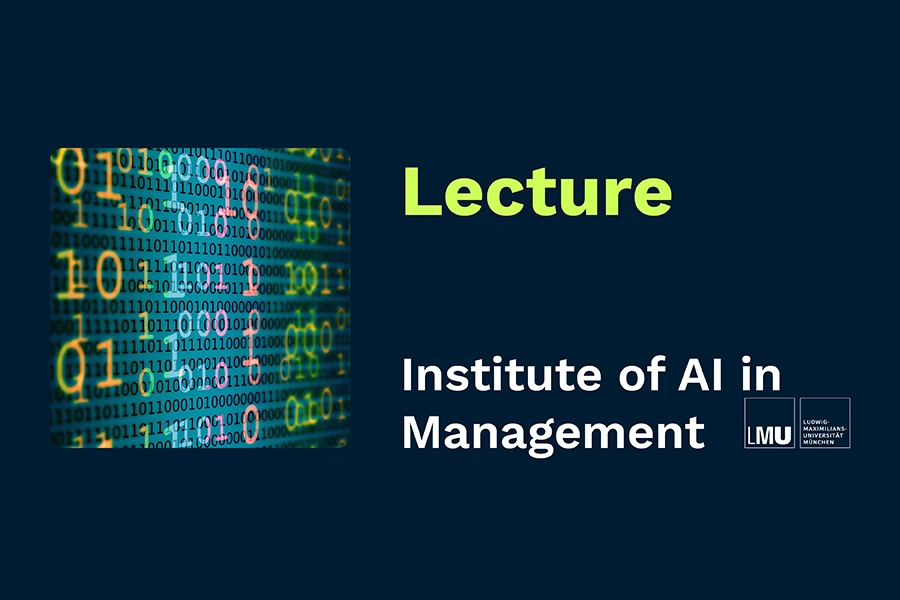
Lecture • 01.04.2025 • LMU Munich, Ludwigstr. 28 VG/II, Room 211b
10:00 am - 11:00 am
AI Writing Assistants’ Influence on User Opinions
Maurice Jakesch, Chair of Computational Social Science Lab, Bauhaus University Weimar
AI writing assistants powered by Large Language Models (LLMs) are increasingly used to support people’s writing. Can they impact people’s opinions in this process? We exposed participants writing …
26
Mar
Munich AI Lectures
2:00 pm - 4:00 pm
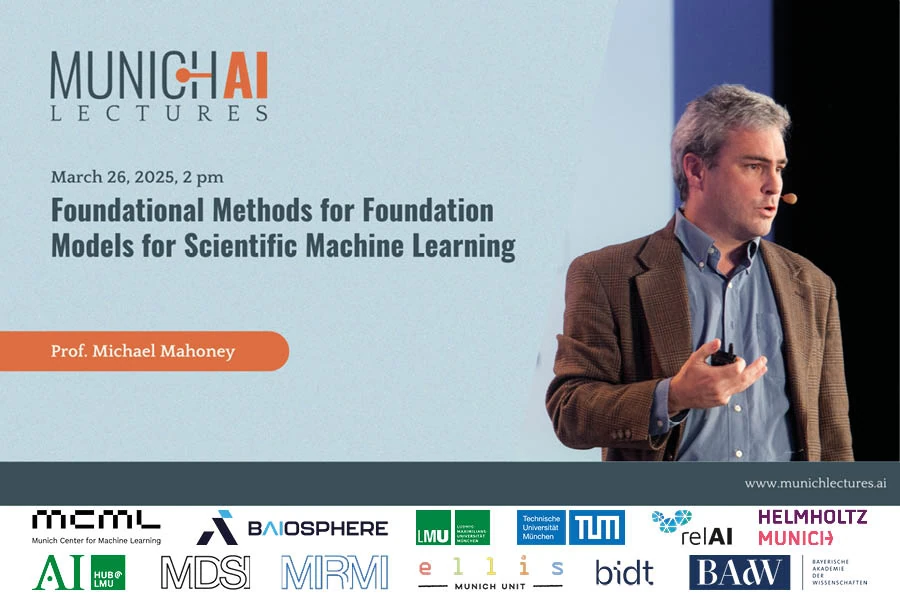
Munich AI Lectures • 26.03.2025 • LMU Munich, Room W201
2:00 pm - 4:00 pm
Foundational Methods for Foundation Models for Scientific Machine Learning
Prof. Dr. Michael Mahoney, University of California at Berkeley
The upcoming Munich AI Lectures will feature Michael Mahoney from UC Berkeley. Organized by the Chair of AI in Management, the lecture will focus on “Foundational Methods for Foundation Models …
20
Mar
AI Keynote Series
4:00 pm - 5:30 pm

©jittawit.21 - stock.adobe.com
AI Keynote Series • 20.03.2025 • Online via zoom
4:00 pm - 5:30 pm
RieszBoost: Gradient Boosting for Riesz Regression
Alejandro Schuler, Division of Biostatistics, UC Berkeley
Answering causal questions often involves estimating linear functionals of conditional expectations, such as the average treatment effect or the effect of a longitudinal modified treatment policy. By …
18
Mar
Lecture
10:30 am - 11:30 am

Lecture • 18.03.2025 • LMU Munich, Ludwigstr. 28 VG/II, Room 211b
10:30 am - 11:30 am
Leveraging Predictive Uncertainty to Enable Reliable Deployment of AI Models
Florian Buettner, Goethe-University Frankfurt
This talk explores a unified theoretical framework for uncertainty quantification in machine learning, extending traditional methods to modern applications like generative modeling. By generalizing …
17
Mar
Lecture
4:00 pm - 5:00 pm
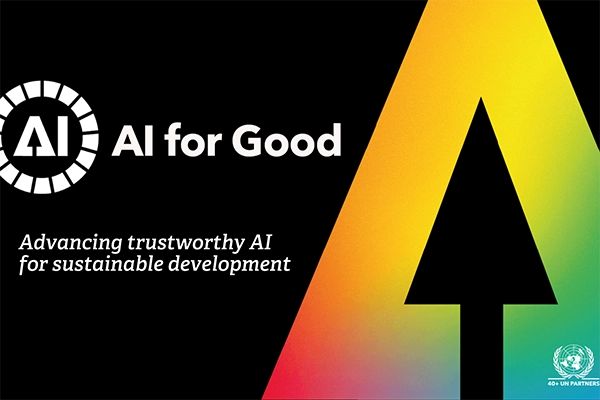
Lecture • 17.03.2025 • AI for Good Platform (Online)
4:00 pm - 5:00 pm
Explainable Multimodal Agents With Symbolic Representations & Can AI Be Less Biased?
Our Junior Member Ruotong Liao at United Nations AI for Good
Our junior member Ruotong Liao is an invited speaker at the United Nations “AI for Good”! With her talk “Perceive, Remember, and Predict: Explainable Multimodal Agents with Symbolic Representations,” …
17
Mar
Lecture
2:00 pm - 5:00 pm
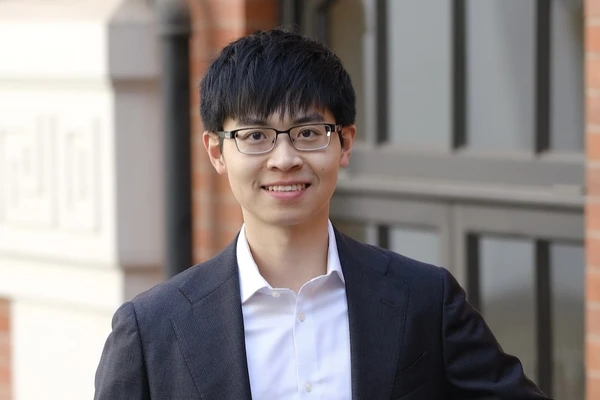
©Elliott Wu
Lecture • 17.03.2025 • TUM, Campus Garching, Boltzmannstr. 3
2:00 pm - 5:00 pm
From Pixels to 3D Motion: Recreating the Physical Natural World From Images
Elliott (Shangzhe) Wu, University of Cambridge
On Monday, March 17th, 2025 at 2pm, Prof. Dr. Elliott (Shangzhe) Wu is visiting us from the University of Cambridge and giving a talk. You can sign up for 1-on-1 meetings with him here. Pixel-based …
18
Feb
Munich AI Lectures
5:00 pm - 6:30 pm
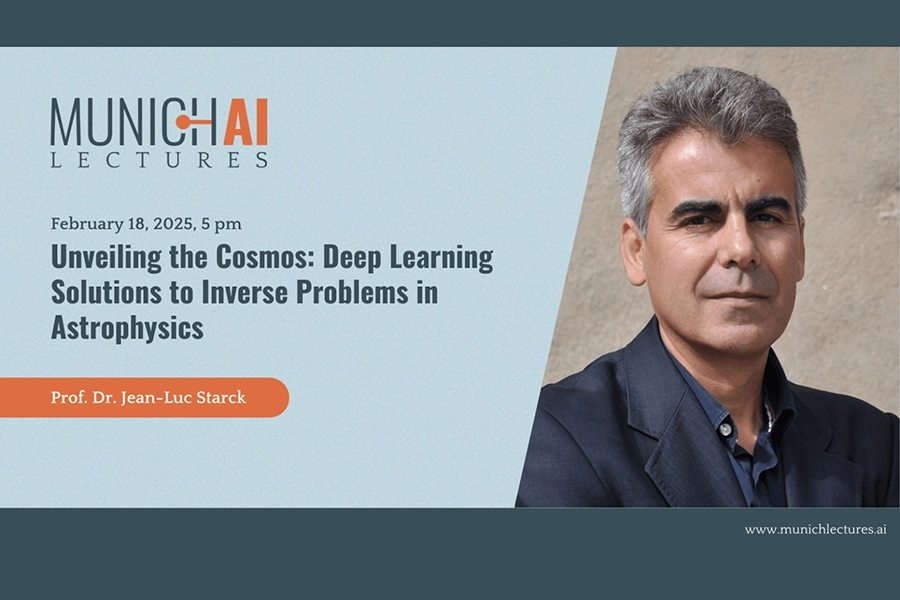
Munich AI Lectures • 18.02.2025 • LMU Munich, Main Building, Senatssaal
5:00 pm - 6:30 pm
Unveiling the Cosmos: Deep Learning Solutions to Inverse Problems in Astrophysics
Prof. Dr. Jean-Luc Starck, CEA-Saclay, France
Join us for the next Munich AI Lectures featuring Prof. Dr. Jean-Luc Starck from the CosmoStat Laboratory, CEA CEA-Saclay, France. Prof. Starck will present “Unveiling the Cosmos: Deep Learning …
13
Feb
AI Keynote Series
10:00 am - 11:30 am

©jittawit.21 - stock.adobe.com
AI Keynote Series • 13.02.2025 • Online via zoom
10:00 am - 11:30 am
Simplifying Debiased Inference via Automatic Differentiation and Probabilistic Programming
Alex Luedtke, Department of Statistics, University of Washington
The speaker would introduce an algorithm that simplifies the construction of efficient estimators, making them accessible to a broader audience. ‘Dimple’ takes as input computer code …
06
Feb
Lecture
11:00 am - 12:00 pm

Lecture • 06.02.2025 • LMU Munich, Ludwigstr. 28 VG/II, Room 211b
11:00 am - 12:00 pm
Causal Discovery: What Can We Learn From Heterogeneous Noise?
Alexander Marx, TU Dortmund
Causal discovery aims to learn causal networks, i.e., directed acyclic graphs (DAGs), from observational data. Although the problem is not feasible in the most general form, as it is not possible to …
30
Jan
Lecture
6:00 pm - 9:30 pm
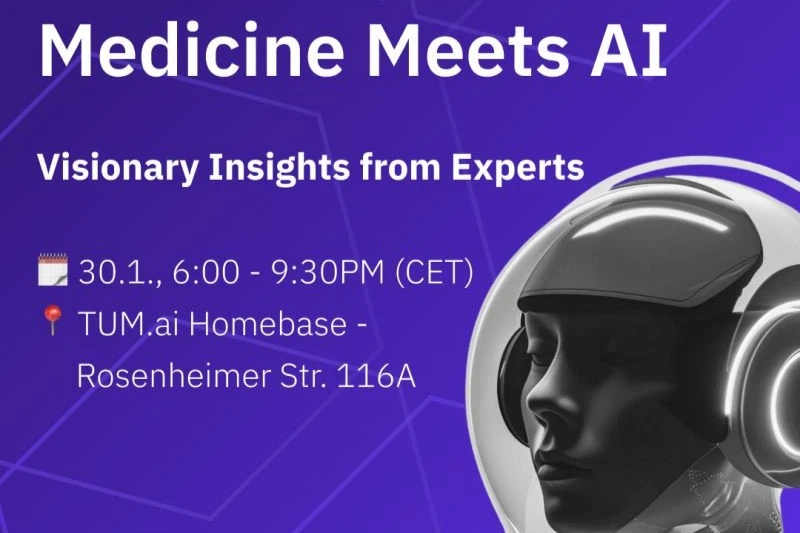
©med-dev.org | TUM.ai Event
Lecture • 30.01.2025 • TUM.ai, Rosenheimer Str. 116A, Munich
6:00 pm - 9:30 pm
Transforming Healthcare With AI
Med-Dev.org X TUM.ai Event
Join an exciting evening where artificial intelligence meets medicine! Organized by med-dev.org in collaboration with TUM.ai, this event will showcase how AI is reshaping healthcare as we know it.
29
Jan
Colloquium
4:00 pm - 6:00 pm

Colloquium • 29.01.2025 • LMU Munich, Department of Statistics and via zoom
4:00 pm - 6:00 pm
A Novel Statistical Approach to Analyze Image Classification
Sophie Langer, University of Twente
Convolutional neural networks (CNNs) excel in image recognition, showcasing remarkable performance in face recognition, medical diagnosis, and autonomous driving. However, their reliability remains a …
29
Jan
Lecture at MaiNLP Lab
4:00 pm - 5:00 pm

Lecture at MaiNLP Lab • 29.01.2025 • LMU Munich, Main Building, Room M 105
4:00 pm - 5:00 pm
AI Interacting With People (Through Language)
Hal Daumé III, Professor, University of Maryland
I’ll discuss three projects related to understanding how people and AI-infused systems can and should interact. In the first, I’ll discuss AI communicating to people, in a shared environment, and how …
28
Jan
Lecture at MaiNLP Lab
2:00 pm - 3:00 pm

Lecture at MaiNLP Lab • 28.01.2025 • LMU Munich, Main Building, Room A 140
2:00 pm - 3:00 pm
Beyond Translation: Human-Centered NLP for Cross-Lingual Communication
Marine Carpuat, Associate Professor, University of Maryland
How can we develop NLP technology to effectively support cross-lingual communication, especially given recent progress in machine translation and multilingual language models? In this talk, I will …
15
Jan
Colloquium
4:00 pm - 6:00 pm

Colloquium • 15.01.2025 • LMU Munich, Department of Statistics and via zoom
4:00 pm - 6:00 pm
Additive Density-on-Scalar Regression in Bayes Hilbert Spaces With an Application to Gender Economics
Sonja Greven, HU Berlin
This talk introduces a novel approach to modeling densities influenced by scalar covariates using structured additive regression models in Bayes Hilbert spaces. This framework handles continuous, …
09
Jan
AI Keynote Series
12:00 pm - 1:30 pm

©jittawit.21 - stock.adobe.com
AI Keynote Series • 09.01.2025 • Online via zoom
12:00 pm - 1:30 pm
Experimental Designs for a/B Testing in Marketplaces
Chengchun Shi, Department of Statistics, London School of Economics and Political Science
Time series experiments, in which experimental units receive a sequence of treatments over time, are frequently employed in many technological companies to evaluate the performance of a newly …
17
Dec
Munich AI Lectures
5:30 pm - 7:00 pm
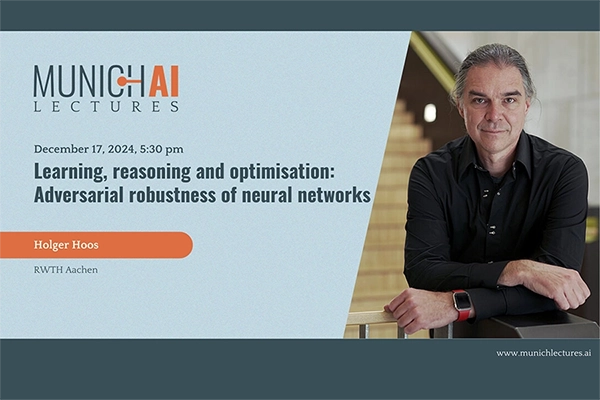
Munich AI Lectures • 17.12.2024 • LMU Munich, Main Building, Senatssaal
5:30 pm - 7:00 pm
Part 2: Learning, Reasoning and Optimisation: Adversarial Robustness of Neural Networks
Holger Hoos, RWTH Aachen University
We are thrilled to invite you to the upcoming Munich AI Lecture featuring two distinguished researchers Prof. Holger Hoos from RWTH Aachen University and Prof. Franca Hoffmann from California …
17
Dec
Munich AI Lectures
4:00 pm - 5:30 pm
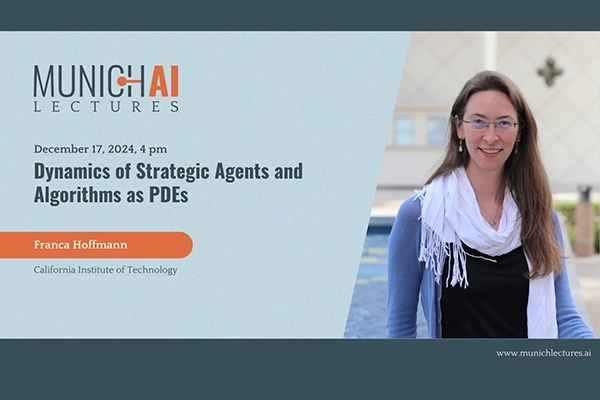
Munich AI Lectures • 17.12.2024 • LMU Munich, Main Building, Senatssaal
4:00 pm - 5:30 pm
Part 1: Dynamics of Strategic Agents and Algorithms as PDEs
Franca Hoffmann, California Institute of Technology
We are thrilled to invite you to the upcoming Munich AI Lecture featuring two distinguished researchers Prof. Holger Hoos from RWTH Aachen University and Prof. Franca Hoffmann from California …
12
Dec
AI Keynote Series
12:00 pm - 1:30 pm

©jittawit.21 - stock.adobe.com
AI Keynote Series • 12.12.2024 • Online via zoom
12:00 pm - 1:30 pm
On Optimal Treatment Regimes Assisted by Algorithms
Mats Julius Stensrud, Chair of Biostatistics, Swiss Federal Institute of Technology Lausanne
Decision makers desire to implement decision rules that, when applied to individuals in the population of interest, yield the best possible outcomes. For example, the current focus on precision …
11
Dec
Colloquium
4:00 pm - 6:00 pm

Colloquium • 11.12.2024 • LMU Munich, Department of Statistics and via zoom
4:00 pm - 6:00 pm
Assumption-Lean (Causal) Modeling
Stijn Vansteelandt, Ghent University
Traditional inference in (semi-)parametric models, such as generalized linear models, typically assumes that the model is correctly specified and pre-determined. However, this approach is increasingly …
02
Dec
Lecture
12:15 pm - 1:45 pm

Lecture • 02.12.2024 • LMU Munich, CAS, Seestr. 13
12:15 pm - 1:45 pm
Lunch Talk: Machine Learning Based Time-to-Event Analysis
With MCML Members Andreas Bender and Stefan Feuerriegel
In many applications the time until an event of interest occurs is an important endpoint. Due to the way such data is collected, however, the outcome of interest can often be observed only partially. …
28
Nov
AI Keynote Series
4:00 pm - 5:30 pm

©jittawit.21 - stock.adobe.com
AI Keynote Series • 28.11.2024 • Online via zoom
4:00 pm - 5:30 pm
Content Curation in Online Platforms
Manoel Horta Ribeiro, Princeton University
Online platforms like Facebook, Wikipedia, Amazon, and Linkedin are embedded in the very fabric of our society. They “curate content”, moderate, recommend, and monetize it, and, in doing so, can …
25
Nov
Munich AI Lectures
5:15 pm - 8:00 pm
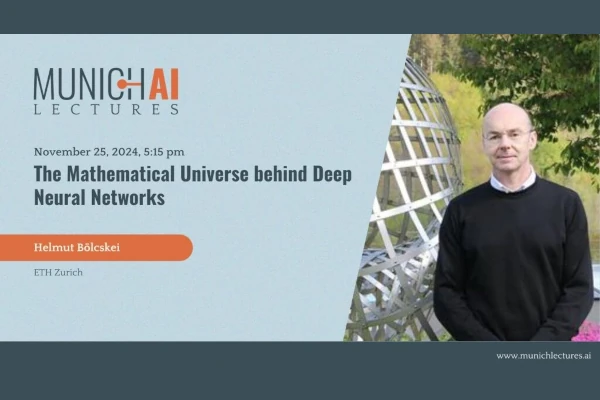
Munich AI Lectures • 25.11.2024 • LMU Munich, Main Building, Große Aula
5:15 pm - 8:00 pm
The Mathematical Universe Behind Deep Neural Networks
Helmut Bölcskei, ETH Zurich
Join us for the next Munich AI Lecture featuring renowned researcher Prof. Dr. Helmut Bölcskei from ETH Zurich, hosted by Prof. Dr. Gitta Kutyniok, Bavarian AI Chair for Mathematical Foundations of …
20
Nov
Colloquium
4:00 pm - 6:00 pm

Colloquium • 20.11.2024 • LMU Munich, Department of Statistics and via zoom
4:00 pm - 6:00 pm
How Game-Theoretic Probability Makes Sense of Cournot's Principle
Glenn Shafer, Rutgers University
Sufficiently high probability is practical certainty. This maxim, now called Cournot’s principle, was repeated by scholars for centuries before Jacob Bernoulli made probability numerical, and it has …
13
Nov
Colloquium
4:00 pm - 6:00 pm

Colloquium • 13.11.2024 • LMU Munich, Department of Statistics and via zoom
4:00 pm - 6:00 pm
The Complexities of Differential Privacy for Survey Data
Jörg Drechsler, IAB, LMU
The concept of differential privacy gained substantial attention in recent years, most notably since the U.S. Census Bureau announced the adoption of the concept for the 2020 Decennial Census. …
23
Oct
Colloquium
4:00 pm - 6:00 pm

Colloquium • 23.10.2024 • LMU Munich, Department of Statistics and via zoom
4:00 pm - 6:00 pm
Planetary Causal Inference: Understanding Society and Economy Through Earth Observation
Connor Jerzak, University of Texas
The book “Planetary Causal Inference” explores how Earth observation (EO) data can enhance social science research, advancing our understanding of human impact on the environment, society, and …
14
Oct
Lecture
7:00 pm - 9:00 pm

Lecture • 14.10.2024 • Bergson Kunstkraftwerk Studio, Rupert-Bodner-Str. 5, Munich
7:00 pm - 9:00 pm
KI - Der Anfang Vom Ende Oder Einfach Nur Nützlich?
Reinhard Heckel, MCML/TUM
Constanze Zawadzky, Innovation Park AI
Together with Constanze Zawadzky (Innovation Park AI), our PI Reinhard Heckel will give interested parties an insight into the world of artificial intelligence. In addition to the basics of artificial …
08
Oct
Lecture
7:30 pm - 9:00 pm

©Rens Dimmendaal & Banjong Raksaphakdee / Better Images of AI / Medicines / CC-BY 4.0
Lecture • 08.10.2024 • Online via zoom
7:30 pm - 9:00 pm
Medizinethik – Ethische Fragen Im Krankenhaus, in Der Forschung Und in Der Politik
Alena Buyx, MCML/TUM
Our PI Alena Buyx will introduce the topic of medical ethics and its relevant fields in the context of contemporary questions. Furthermore, significant cases in this ethical discipline will be …
26
Sep
Lecture
2:00 pm - 3:00 pm

Lecture • 26.09.2024 • LRZ, Boltzmannstr. 1, Garching, Kommissionsraum and online via zoom
2:00 pm - 3:00 pm
Generative AI
Geetika Gupta, Nvidia
The intersection of generative AI and science is revolutionizing research and discovery across various scientific disciplines. Generative AI, capable of creating new content based on learned patterns, …
19
Sep
Lecture
8:30 am - 5:00 pm
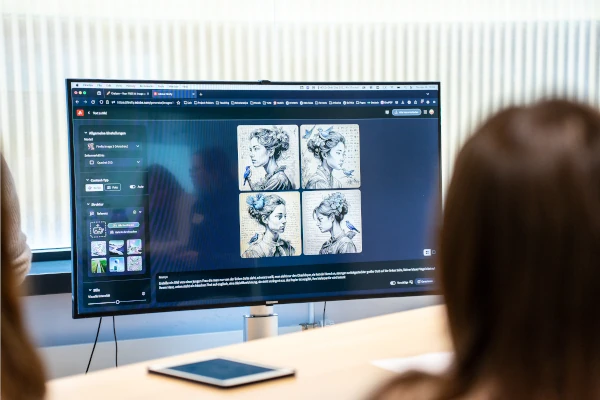
Lecture • 19.09.2024 • TUM, Campus Munich, Marsstr. 20-22
8:30 am - 5:00 pm
Bavarian Computer Science Teachers' Day 2024
Steffen Schneider, Helmholtz
MCML Associate Steffen Schneider will give a keynote talk about AI in the context of teaching at the ILTB 24. Following the premise “Explore AI, Understand AI, Evaluate AI, and Develop (with) …
09
Sep
Talk
4:00 pm - 5:30 pm

Talk • 09.09.2024 • LMU Munich, Ludwigstr. 28, Room 211B
4:00 pm - 5:30 pm
Extrapolation-Aware Nonparametric Statistical Inference
Niklas Pfister, University of Copenhagen
Niklas Pfister from the University of Copenhagen will give a talk titled “Extrapolation-Aware Nonparametric Statistical Inference”. Extrapolation occurs in many data analysis applications and can …
16
Aug
Lecture
2:30 pm - 3:30 pm

Lecture • 16.08.2024 • LMU Munich, Schellingstr. 3, Lecture Hall S 002
2:30 pm - 3:30 pm
How to "Improve" Prediction Using Behavior Modification
Galit Shmueli, National Tsing Hua University, Taiwan
Galit Shmueli will explore how internet platforms leverage behavioral data to predict user behavior, both for internal purposes and for their business clients, such as advertisers, insurers, and …
08
Aug
AI Keynote Series
4:00 pm - 5:30 pm

©jittawit.21 - stock.adobe.com
AI Keynote Series • 08.08.2024 • Online via zoom
4:00 pm - 5:30 pm
Auditing Fairness Under Unobserved Confounding
Michael Oberst, Johns Hopkins University
Inequity in resource allocation has been well-documented in many domains, such as healthcare. Causal measures of equity / fairness seek to isolate biases in allocation that are not explained by other …
22
Jul
Munich AI Lectures
3:00 pm - 4:00 pm
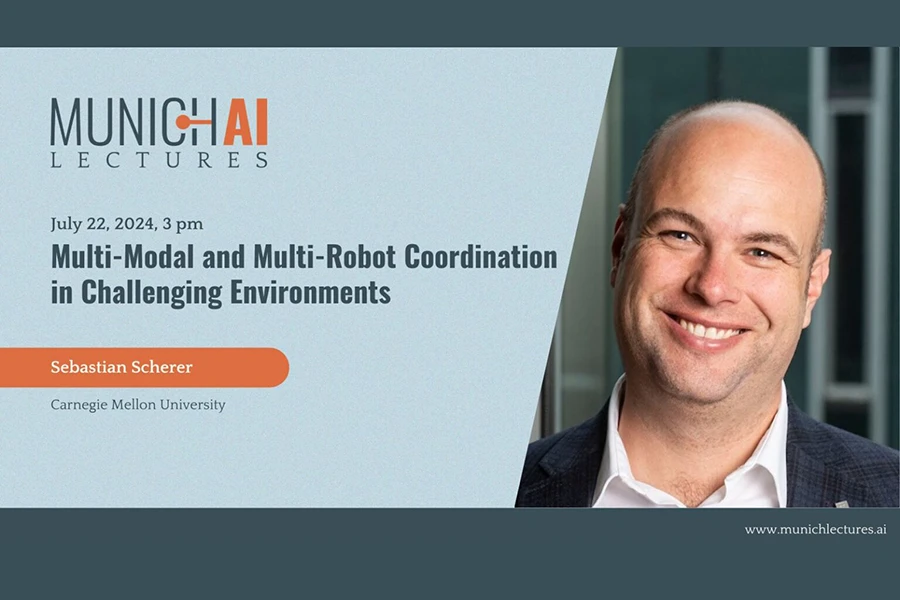
Munich AI Lectures • 22.07.2024 • TUM, Campus Garching, FMI Building, Lecture Hall 2 (00.04.011), Boltzmannstr. 3 or online via Livestream
3:00 pm - 4:00 pm
Multi-Modal and Multi-Robot Coordination in Challenging Environments
Sebastian Scherer, Carnegie Mellon University (CMU)
On behalf of our partners at the Bavarian AI network baiosphere, the MCML cordially invites you to the Munich AI Lectures. Sebastian Scherer, Associate Research Professor at the Robotics Institute …
18
Jul
AI Keynote Series
5:00 pm - 6:30 pm

©jittawit.21 - stock.adobe.com
AI Keynote Series • 18.07.2024 • Online via zoom
5:00 pm - 6:30 pm
Representation Learning: A Causal Perspective
Yixin Wang, University of Michigan
Representation learning aims to create low-dimensional representations that capture essential features of high-dimensional data, such as images and texts. Ideally, these representations should …
17
Jul
Munich AI Lectures
6:00 pm - 8:00 pm
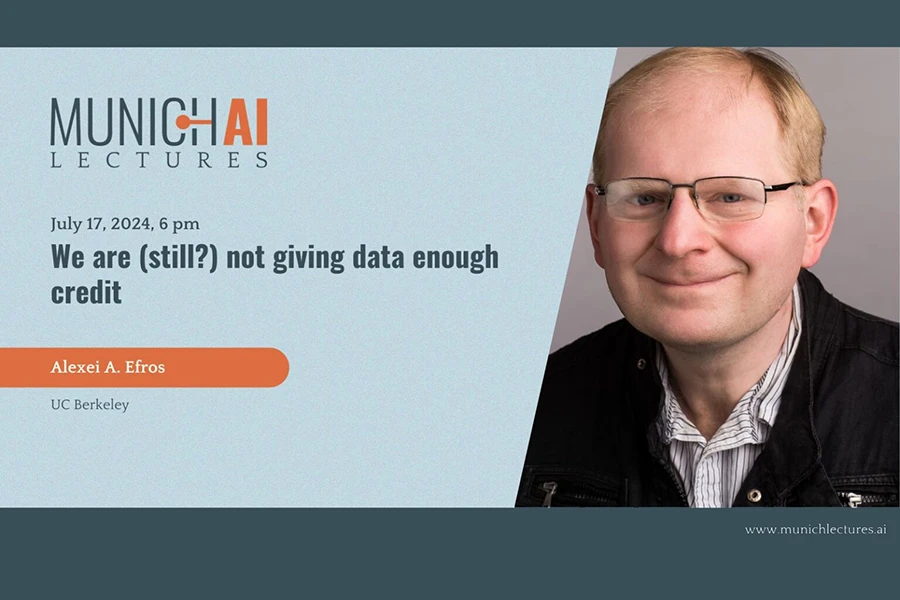
Munich AI Lectures • 17.07.2024 • BAdW, Alfons-Goppel-Str. 11, Munich, Plenarsaal
6:00 pm - 8:00 pm
We Are (Still?) Not Giving Data Enough Credit
Alexei A. Efros, UC Berkeley
On behalf of our partners at the Bavarian AI network baiosphere, the MCML cordially invites you to the first Highlight Lecture of the year as part of the Munich AI Lectures. For most of Computer …
16
Jul
Lecture
7:30 pm - 9:00 pm
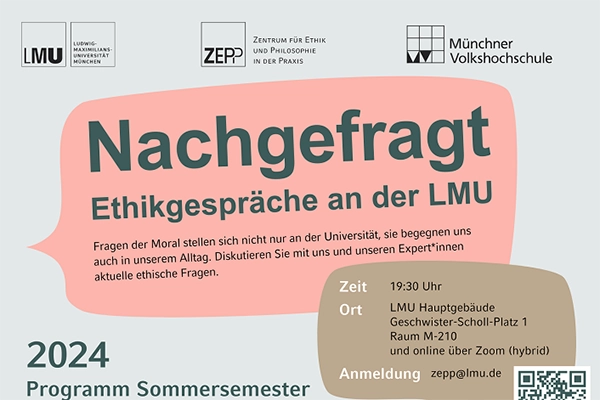
©geralt - pixabay.com
Lecture • 16.07.2024 • LMU Munich, Main Building, M 210 und online via zoom
7:30 pm - 9:00 pm
Nachgefragt – Ethikgespräche an Der LMU: Kann ChatGPT Denken?
David Lauer, University of Kiel
In 1950, British mathematician Alan Turing proposed a now-famous test to determine if a machine can think: a machine should be considered thinking if it can converse with humans in such a way that its …
16
Jul
Lecture
11:00 am - 12:30 pm

Lecture • 16.07.2024 • LMU Munich, Ludwigstr. 28 VG/II, Room 211b
11:00 am - 12:30 pm
Methodological Advances in Experimental Design
Drew Dimmery, Hertie School Data Science Lab
Drew Dimmery will discuss methodological advances in experimental design, emphasizing resolving issues before data collection. They will cover three key areas: enhancing treatment assignment for …
16
Jul
Colloquium
11:00 am - 11:00 am

Colloquium • 16.07.2024 • LMU Munich, Department of Statistics and via zoom
11:00 am - 11:00 am
Privacy, Data Privacy, and Differential Privacy
James Bailie, Harvard University
This talk invites inquisitive audiences to explore the intricacies of data privacy, tracing its origins from the late 19th century to its critical importance in the digital age. It examines …
15
Jul
Munich AI Lectures
5:00 pm - 7:00 pm
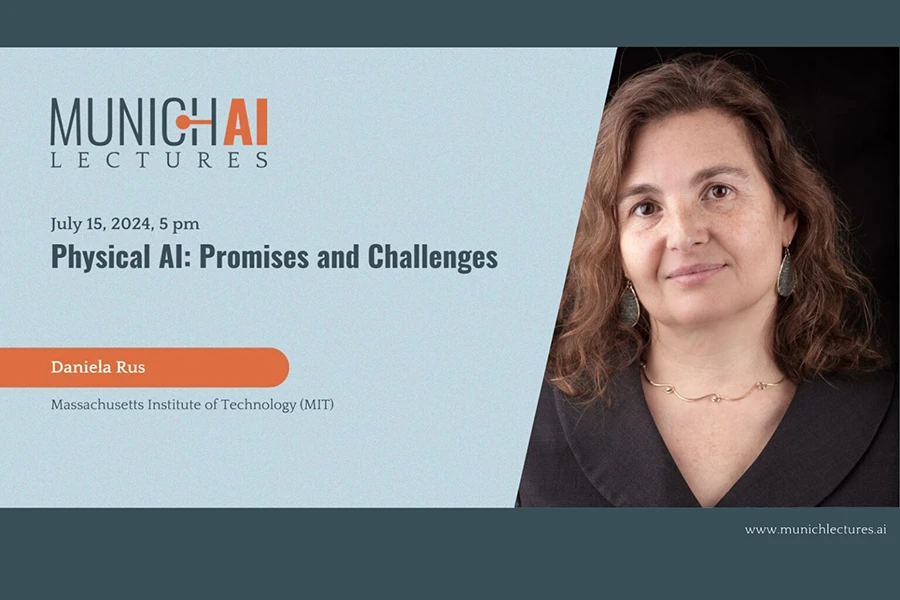
Munich AI Lectures • 15.07.2024 • TUM, Institute for Advanced Study, Auditorium (Ground floor), Lichtenbergstr. 2a, Garching
5:00 pm - 7:00 pm
Physical AI: Promises and Challenges
Daniela Rus, Massachusetts Institute of Technology (MIT)
On behalf of our partners at the Bavarian AI network baiosphere, the MCML cordially invites you to the Munich AI Lectures. Daniela Rus, Director of the Computer Science and Artificial Intelligence …
10
Jul
Colloquium
3:15 pm - 4:45 pm

Colloquium • 10.07.2024 • LMU Munich, Department of Statistics and via zoom
3:15 pm - 4:45 pm
Variational Learning for Large Deep Networks
Thomas Möllenhoff, RIKEN, Tokyo
Thomas Möllenhoff presents extensive evidence against the common belief that variational Bayesian learning is ineffective for large neural networks. First, he shows that a recent deep learning method …
09
Jul
Lecture
1:30 pm - 2:30 pm

Lecture • 09.07.2024 • LMU Munich, Ludwigstr. 28 VG/II, Room 211b
1:30 pm - 2:30 pm
Patient Risk Stratification Through a Causal Lens
Jenna Wiens, University of Michigan
It is estimated that in up to a third of in-hospital deaths patients develop sepsis, the body’s overwhelming response to infection. Given the significant morbidity associated with sepsis, many …
04
Jul
Lecture
11:00 am - 12:00 pm

Lecture • 04.07.2024 • LMU Munich, Ludwigstr. 28 VG/II, Room 211b
11:00 am - 12:00 pm
Large Language Models in the Age of Misinformation
Francesco Pierri, Politecnico Di Milano
The rise of novel generative AI has sparked widespread excitement and significant concerns worldwide. These technologies, such as OpenAI’s GPT-4 and Midjourney, have demonstrated unprecedented …
03
Jul
Colloquium
4:15 pm - 5:45 pm

Colloquium • 03.07.2024 • LMU Munich, Department of Statistics and via zoom
4:15 pm - 5:45 pm
Can Today’s Intention to Treat Have a Causal Effect on Tomorrow’s Hazard Function?
Jan Beyersmann, University of Ulm
Hazards condition on previous survival, making them identifiable with censored data and key to survival analysis. However, this raises causal concerns. Post-randomization, effective treatments might …
28
Jun
Lecture
10:00 am - 12:00 pm

©Marcio - stock.adobe.com
Lecture • 28.06.2024 • TUM Campus Garching, FMI Building, Room 00.13.009A
10:00 am - 12:00 pm
Can Computers Beat Humans at Design?
Wojciech Matusik, MIT
Design is everywhere: high-performance turbines, polymers with outstanding material properties, unmanned aerial vehicles, metamaterials, or computer algorithms. However, the best designs are a product …
26
Jun
Colloquium
4:15 pm - 5:45 pm

Colloquium • 26.06.2024 • LMU Munich, Department of Statistics and via zoom
4:15 pm - 5:45 pm
The Complexities of Differential Privacy for Survey Data
Jörg Drechsler, LMU Munich
The concept of differential privacy gained substantial attention in recent years, most notably since the U.S. Census Bureau announced the adoption of the concept for the 2020 Decennial Census. …
25
Jun
Munich AI Lectures
5:00 pm - 7:00 pm
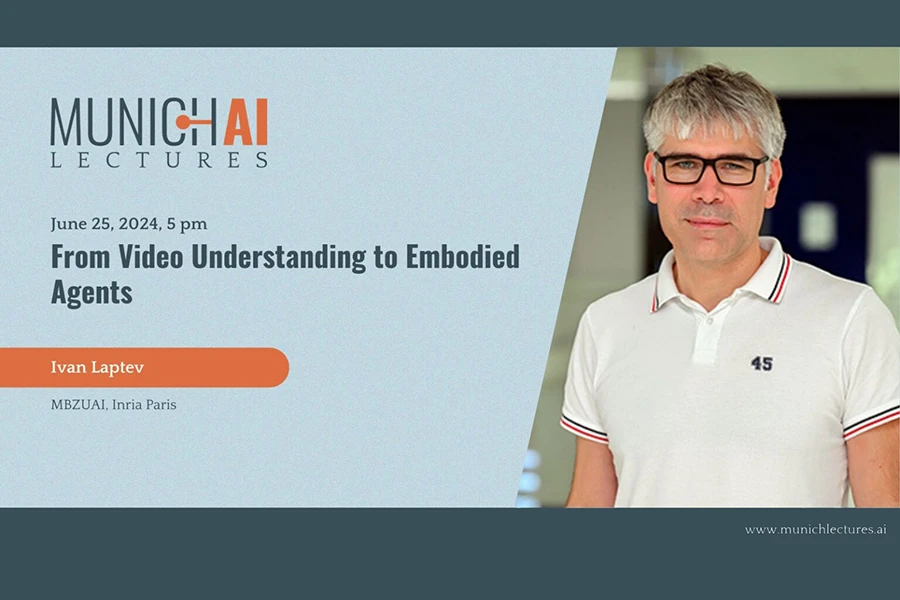
Munich AI Lectures • 25.06.2024 • TUM, Campus Munich, Arcisstr. 21, Room 0790
5:00 pm - 7:00 pm
From Video Understanding to Embodied Agents
Ivan Laptev, MBZUAI, Inria Paris
On behalf of our partners at the Bavarian AI network baiosphere, the MCML cordially invites you to the Munich AI Lectures. The renowned AI researcher Ivan Laptev will talk about AI models that are …
19
Jun
Lecture Series
4:30 pm - 6:00 pm

Lecture Series • 19.06.2024 • TUM, Institute of History and Ethics in Medicine, Ismaninger Str. 22, Munich and Online (Zoom)
4:30 pm - 6:00 pm
Stereotypical Technologies – Stereotypical Healthcare? Towards Diversity-Sensitive Healthcare in the Digital Era
Niklas Ellerich-Groppe, University of Oldenburg
As part of the IHEM Speaker Series at the Institute for the History and Ethics of Medicine, led by our PI Alena Buyx, Niklas Ellerich-Groppe will discuss ethical issues in healthcare that arise from …
19
Jun
Colloquium
4:15 pm - 5:45 pm

Colloquium • 19.06.2024 • LMU Munich, Department of Statistics and via zoom
4:15 pm - 5:45 pm
Resampling-Based Inference for the Average Treatment Effect in Observational Studies With Competing Risks
Sarah Friedrich, Universität Augsburg
In observational studies with time-to-event outcomes subject to competing risks, the g-formula can be used to estimate a treatment effect in the presence of confounding factors. The construction of …
18
Jun
Munich AI Lectures
5:00 pm - 6:00 pm
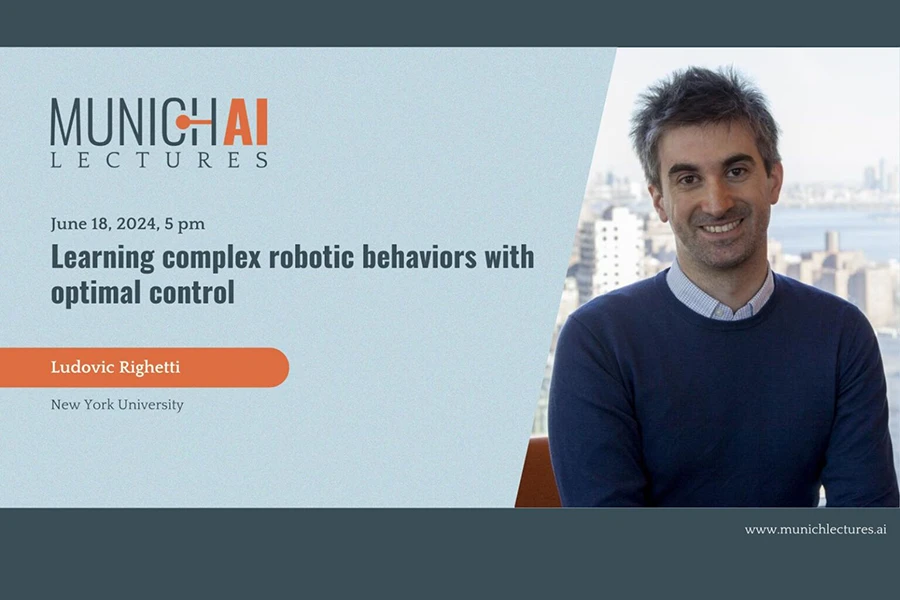
Munich AI Lectures • 18.06.2024 • TUM, Campus Munich, Arcisstr. 21, Room 0790 (ground floor)
5:00 pm - 6:00 pm
Learning Complex Robotic Behaviors With Optimal Control
Ludovic Righetti, New York University (NYU)
On behalf of our partners at the Bavarian AI network baiosphere, the MCML cordially invites you to the Munich AI Lectures. Nonlinear model predictive control (MPC) is effective for generating diverse …
06
Jun
Lecture
4:15 pm - 5:45 pm

Lecture • 06.06.2024 • LMU Munich, Große Aula
4:15 pm - 5:45 pm
From Bach to Natural Machines: Algorithms as Shapers of Music
Dan Tepfer, FarPlay
In the context of the Mathematical Colloquium, we invite you to attend a very special event. Dan Tepfer, world-class pianist, composer, and astrophysicist, will perform on Thursday, June 6th, in the …
06
Jun
AI Keynote Series
12:00 pm - 1:30 pm

©jittawit.21 - stock.adobe.com
AI Keynote Series • 06.06.2024 • Online via zoom
12:00 pm - 1:30 pm
Interpretable Prediction With Missing Values
Fredrik Johansson, Chalmers University of Technology
Missing values plague many application domains of machine learning, both in training data and in deployment. Healthcare is just one example—patient records are notorious for omissions of important …
05
Jun
Colloquium
4:15 pm - 5:45 pm

Colloquium • 05.06.2024 • LMU Munich, Department of Sociology, IfS 309 and online via zoom
4:15 pm - 5:45 pm
Multiverse Analysis: On the Robustness of Functional Form and Data Pre-Processing Decisions
Cristobal Young, Cornell University
Functional form assumptions are central ingredients of a model specification. Just as there are many possible control variables, there is also an abundance of estimation commands and strategies one …
03
Jun
Colloquium
4:15 pm - 5:45 pm

Colloquium • 03.06.2024 • LMU Munich, Department of Statistics and via zoom
4:15 pm - 5:45 pm
Explainable Methods for Reinforcement Learning
Jasmina Gajcin, Trinity College Dublin
Deep reinforcement learning (DRL) algorithms have been successfully devel- oped for many high-risk real-life tasks in many fields such as autonomous driving, healthcare and finance. However, these …
29
May
Colloquium
4:15 pm - 5:45 pm

Colloquium • 29.05.2024 • LMU Munich, Department of Statistics and via zoom
4:15 pm - 5:45 pm
Provable Boolean Interaction Recovery From Tree Ensemble Obtained via Random Forests
Merle Behr, Universität Regensburg
Random Forests (RFs) are at the cutting edge of supervised machine learning in terms of prediction performance, especially in genomics. Iterative RFs (iRFs) use a tree ensemble from iteratively …
27
May
Lecture
4:30 pm - 6:00 pm

Lecture • 27.05.2024 • LMU Munich, Ludwigstr. 28 VG/II, Room 211b
4:30 pm - 6:00 pm
Improving Motion Prediction in Autonomous Driving With Expert Knowledge - A Bayesian Deep Learning Approach
Nadja Klein, TU Dortmund
Autonomous driving is one of the most highly anticipated yet elusive mobility innovations. The field has made significant advances through deep learning, especially in perception and motion …
23
May
AI Keynote Series
5:00 pm - 6:30 pm

©jittawit.21 - stock.adobe.com
AI Keynote Series • 23.05.2024 • Online via zoom
5:00 pm - 6:30 pm
Innovating AI Products for Social Good in the Age of Foundational Models
Qian Yang, Cornell University Department of Information Science
Accounting for AI’s unintended consequences—whether misinformation on social media or issues of fairness and social justice—increasingly requires AI systems designers to go beyond immediate user …
15
May
Colloquium
5:00 pm - 6:30 pm

Colloquium • 15.05.2024 • LMU Munich, Department of Statistics and via zoom
5:00 pm - 6:30 pm
Optimal Convex M-Estimation via Score Matching
Richard Samworth, Cambridge University
In the context of linear regression, we construct a data-driven convex loss function with respect to which empirical risk minimisation yields opti- mal asymptotic variance in the downstream estimation …
25
Apr
Colloquium
2:15 pm - 3:45 pm

Colloquium • 25.04.2024 • LMU Munich, Department of Statistics and via zoom
2:15 pm - 3:45 pm
Heat-Related Mortality in the Context of Climate Change
Susanne Breitner-Busch, Institute of Epidemiology, Helmholtz Munich
Climate change has a significant impact on human health, especially through heat exposure. Human-induced climate change is expected to increase the overall air temperature, as well as the intensity …
16
Apr
Lecture
2:00 pm - 3:30 pm

©stock.adobe.com - ASDF
Lecture • 16.04.2024 • LMU Munich, Main Building, Room M001
2:00 pm - 3:30 pm
Some Recent Advances in Exceptional Model Mining: Tales of Potatos, Boris Johnson, and Atrial Fibrillation
Wouter Duivesteijn, TU Eindhoven
This MCML workshop covers the topic of Exceptional Model Mining (EMM). EMM finds exceptional subgroups in data by partitioning columns for candidate subgroup definition and evaluation of the …
08
Apr
Munich AI Lectures
5:00 pm - 6:00 pm
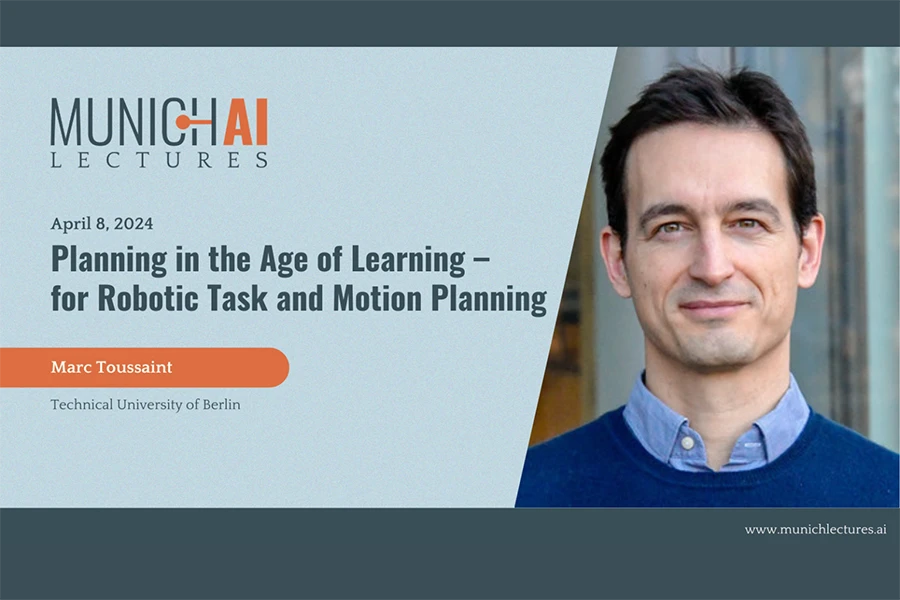
Munich AI Lectures • 08.04.2024 • TUM, Campus Munich, Arcisstr. 21, Room 0790 (ground floor)
5:00 pm - 6:00 pm
Planning in the Age of Learning – For Robotic Task and Motion Planning
Marc Toussaint, TU Berlin
On behalf of our partners at the Bavarian AI network baiosphere, the MCML cordially invites you to the Munich AI Lectures. Task and Motion Planning (TAMP) is a standard framework in robotics for …
14
Mar
Lecture
4:00 pm - 5:00 pm
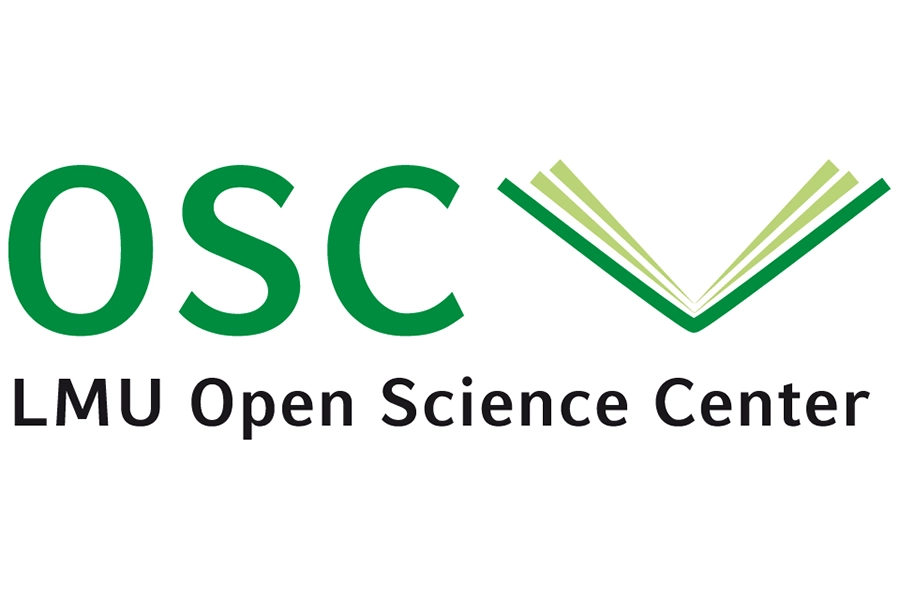
Lecture • 14.03.2024 • LMU Munich and Zoom
4:00 pm - 5:00 pm
Increasing Transparency Through Preregistration and/or Multiverse Analyses
Prof. Dr. Andrea Hildebrandt, Carl Von Ossietzky Universität Oldenburg
The LMU Open Science Center invites to a lecture on multiverse analyses by Prof. Dr. Andrea Hildebrandt. Pre-registering an analysis plan means committing to analytical steps without knowing the …
12
Mar
Lecture
5:30 pm - 7:00 pm

©LMU
Lecture • 12.03.2024 • Hochschule Neu Ulm, Germany
5:30 pm - 7:00 pm
HNU-Management-Forum With Our PI Albrecht Schmidt
KI Als Neuer Alltagsbegleiter – Was Delegieren Wir Und Was Wollen Wir Noch Selbst Denken Und Tun?
Our PI Albrecht Schmidt will be giving a lecture at the HNU-Management Forum. During the event, Professor Schmidt will discuss AI, its meaningful use, and the challenges associated with it. He will …
11
Mar
Munich AI Lectures
6:15 pm - 7:45 pm
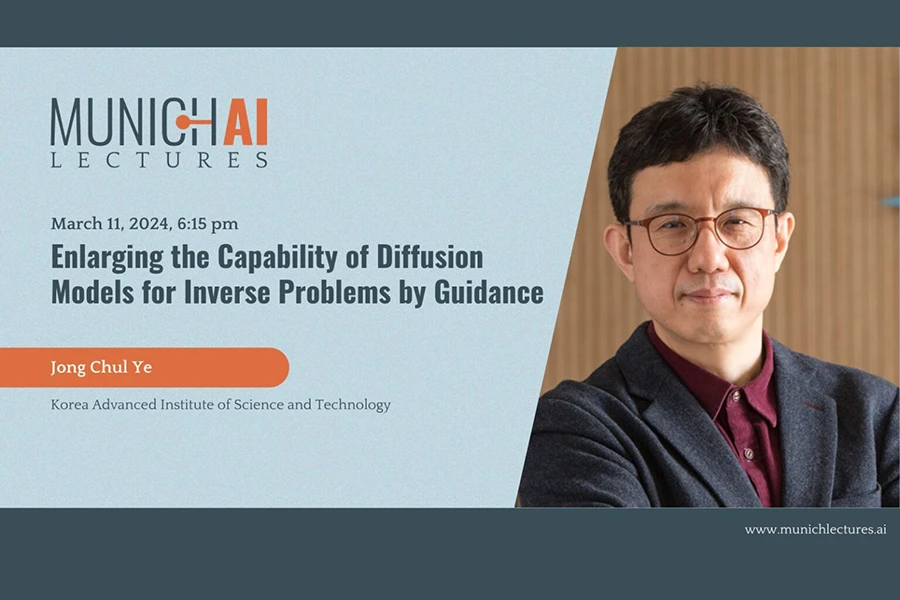
Munich AI Lectures • 11.03.2024 • LMU Munich, Theresienstr. 39, Room B 006
6:15 pm - 7:45 pm
Enlarging the Capability of Diffusion Models for Inverse Problems by Guidance
Jong Chul Ye, Graduate School of Artificial Intelligence, KAIST, Korea
The talk introduces two key innovations for enhancing diffusion models in solving inverse problems: First, a method leveraging two perpendicular 2D diffusion models to tackle 3D problems by …
28
Feb
Colloquium
4:15 pm - 5:45 pm

Colloquium • 28.02.2024 • LMU Munich, Department of Statistics and via zoom
4:15 pm - 5:45 pm
Use Case for Bayesian Deep Learning in the Age of ChatGPT
Vincent Fortuin, Helmholtz AI & MCML
Many researchers have pondered the same existential questions since the release of ChatGPT: Is scale really all you need? Will the future of machine learning rely exclusively on foundation models? …
21
Feb
Colloquium
2:15 pm - 3:45 pm

Colloquium • 21.02.2024 • LMU Munich, Department of Statistics and via zoom
2:15 pm - 3:45 pm
Large-Scale Pretraining: The Nitty-Gritty Details
Robert Baldock, Aleph Alpha
This talk will give a rare close-up of the nitty-gritty details that go into training large-scale LLMs. In the autumn of 2023, Aleph Alpha Research Lab prepared to train their next generation of large …
08
Feb
AI Keynote Series
12:15 pm - 2:45 pm

AI Keynote Series • 08.02.2024 • LMU Munich, Institute of AI in Management via zoom
12:15 pm - 2:45 pm
Causal Scoring: A Framework for Effect Estimation, Effect Ordering, and Effect Classification
Carlos Fernández-Loría, the Hong Kong University of Science and Technology
The presentation introduces causal scoring for decision-making, with interpretations: effect estimation (EE), effect ordering (EO), and effect classification (EC). EE represents the causal effect, EO …
25
Jan
Munich AI Lectures
5:00 pm - 7:00 pm
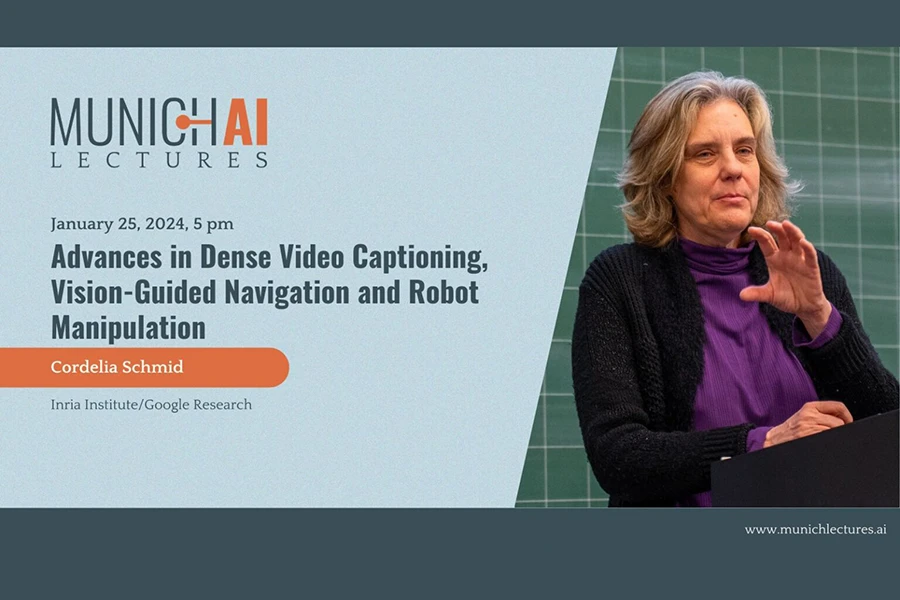
Munich AI Lectures • 25.01.2024 • TUM, Campus Munich, Arcisstr. 21, Room 0790
5:00 pm - 7:00 pm
Advances in Dense Video Captioning, Vision-Guided Navigation and Robot Manipulation
Cordelia Schmid, Inria Institute / Google Research
On behalf of our partners at the Bavarian AI network baiosphere, the MCML cordially invites you to the Munich AI Lectures. Cordelia Schmid is a pioneer in AI research. She invented procedures in the …
18
Jan
AI Keynote Series
6:15 pm - 7:45 pm

AI Keynote Series • 18.01.2024 • LMU Munich, Institute of AI in Management via zoom
6:15 pm - 7:45 pm
Machine Learning Who to Nudge: Causal vs Predictive Targeting in a Field Experiment on Student Financial Aid Renewal
Jann Spiess, Stanford Graduate School of Business
The presentation handles the nuances of intervention effectiveness on targeting strategies. In a large-scale field experiment with 53,000 college students, the value of different targeting approaches …
11
Jan
AI Keynote Series
5:15 pm - 6:45 pm

AI Keynote Series • 11.01.2024 • LMU Munich, Institute of AI in Management via zoom
5:15 pm - 6:45 pm
Linear Structure of High-Level Concepts in Text-Controlled Generative Models
Victor Veitch, University of Chicago
Text controlled generative models (such as large language models or text-to-image diffusion models) operate by embedding natural language into a vector representation, then using this representation …
10
Jan
Colloquium
4:15 pm - 5:45 pm

Colloquium • 10.01.2024 • LMU Munich, Department of Statistics and via zoom
4:15 pm - 5:45 pm
From Couch to Poll: Media Content and the Value of Local Information
Mathias Bühler, Volkswirtschaftliche Fakultät, LMU Munich
Analyzing Canada’s media landscape, the study reveals that TV introduction reduced voter turnout, primarily in public markets. Private broadcasters emphasize local information, prompting …
14
Dec
Lecture
6:00 pm - 8:00 pm
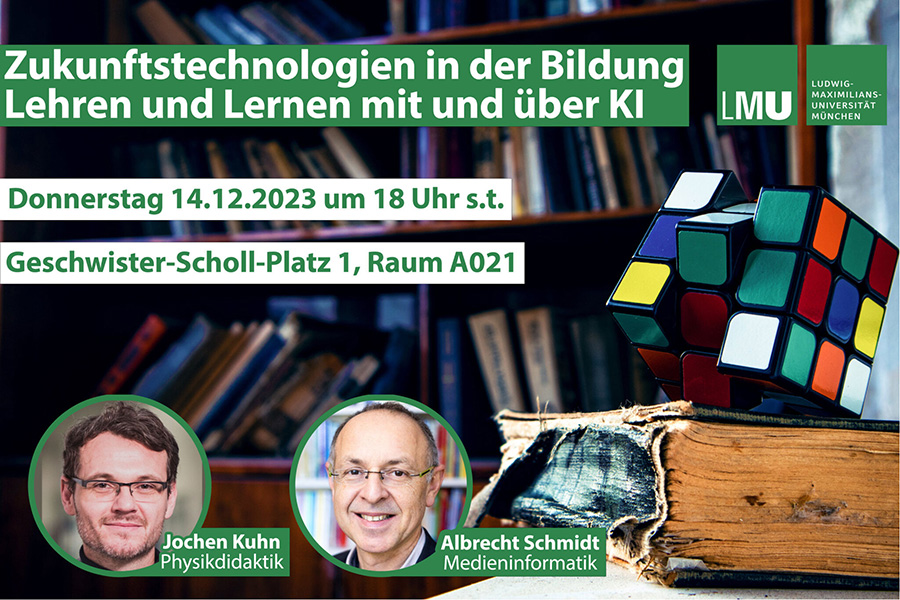
Lecture • 14.12.2023 • LMU Munich, Main Building, A-021
6:00 pm - 8:00 pm
Zukunftstechnologien in Der Bildung – Lehren Und Lernen Mit Und Über KI
Albrecht Schmidt, Human-Centered Ubiquitous Media, LMU Munich
Jochen Kuhn, Chair of Physics Education, LMU Munich
With the high-profile spread of ChatGPT, AI is also accessible to society. In this context, their use in education is also increasingly at the center of public debate. The event will provide insights …
14
Dec
Colloquium
4:15 pm - 5:45 pm

Colloquium • 14.12.2023 • LMU Munich, Department of Statistics and via zoom
4:15 pm - 5:45 pm
In Search of Alignment Between Social Media Posts and Survey Responses
Frederick Conrad, Michigan Program in Survey and Data Science
Social media’s potential for research hinges on alignment with survey data. This presentation explores alignment’s elusive nature, assessing likelihood under varied conditions. It …
06
Dec
Lecture
7:00 pm - 8:30 pm

Lecture • 06.12.2023 • Deutsches Museum Munich and Livestream
7:00 pm - 8:30 pm
MCML PI Matthias Niessner About Fotorealistic 3D Avatars
Matthias Niessner, TU Munich
TUM Professor and MCML PI Matthias Niessner will discuss the creation of photorealistic 3D replicas of the real world. He explores the evolution from pictures and videos to interactive holographic …
06
Dec
Colloquium
4:15 pm - 5:45 pm

Colloquium • 06.12.2023 • LMU Munich, Department of Statistics and via zoom
4:15 pm - 5:45 pm
AutoML for Tabular Datasets and Tabular Datasets for AutoML
Matthias Feurer, Department of Statistics, LMU Munich
AutoML simplifies the usage of ML by domain experts and allows ML experts to outsource boring and repetitive tasks to computers. In this presentation Matthias Feurer will give a short introduction …
27
Nov
Colloquium
4:15 pm - 5:45 pm

Colloquium • 27.11.2023 • LMU Munich, Department of Statistics and via zoom
4:15 pm - 5:45 pm
The Power of Prediction
Moritz Hardt, Max Planck Institute for Intelligent Systems, Tübingen
Moritz Hardt explores performative prediction’s impact on human populations. Distinguishing between discovering patterns and steering populations, he introduces a power notion for digital platforms, …
20
Nov
Colloquium
3:00 pm - 4:30 pm

Colloquium • 20.11.2023 • LMU Munich, Department of Statistics and via zoom
3:00 pm - 4:30 pm
Finite-Sample Exact Prediction Bands for Functional Data
Simone Vantini, Polytechnic University of Milan
The talk discusses creating prediction bands for new observations in functional data with covariates. Leveraging Conformal Prediction and Functional Data Analysis, the proposed nonparametric method …
08
Nov
Colloquium
4:15 pm - 5:45 pm

Colloquium • 08.11.2023 • LMU Munich, Department of Statistics and via zoom
4:15 pm - 5:45 pm
Active Learning-Assisted Neutron Spectroscopy With Log-Gaussian Processes
Mario Teixeira Parente, Department of Statistics, LMU Munich
Active learning at three-axes spectrometers (TAS) optimizes beam time by choosing informative measurement locations while considering instrument costs. The presentation introduces a method, based on …
03
Nov
Colloquium
1:15 pm - 2:45 pm

Colloquium • 03.11.2023 • LMU Munich, Department of Statistics and via zoom
1:15 pm - 2:45 pm
Variational Inference for Cutting Feedback in Misspecified Models
Michael Smith, Melbourne Business School
This talk delves into Bayesian analyses, focusing on the challenging task of cutting feedback in joint Bayesian models when certain terms are misspecified. It introduces cut posterior distributions as …
25
Oct
Lecture
7:00 pm - 8:30 pm

©spainter_vfx - stock.adobe.com
Lecture • 25.10.2023 • Deutsches Museum Munich and Livestream
7:00 pm - 8:30 pm
MCML Director Daniel Cremers About the Past and Future of AI
Lecture Series "Wissenschaft Für Jedermann" @Deutsches Museum
Our Director Daniel Cremers gives a lecture on the history of AI from its beginnings to neural networks as part of the lecture series “Wissenschaft für jedermann” at Deutsches Museum Munich. He will …
05
Oct
Lecture
10:00 am - 12:00 pm

Lecture • 05.10.2023 • LMU Munich, IBE Library and via zoom
10:00 am - 12:00 pm
Replicability of Simulation Studies for the Investigation of Statistical Methods: The RepliSims Project
Kim Luijken, University Medical Center Utrecht
Results of simulation studies evaluating the performance of statistical methods are often considered actionable and thus can have a major impact on the way empirical research is implemented. However, …
04
Oct
Lecture
7:00 pm - 8:30 pm
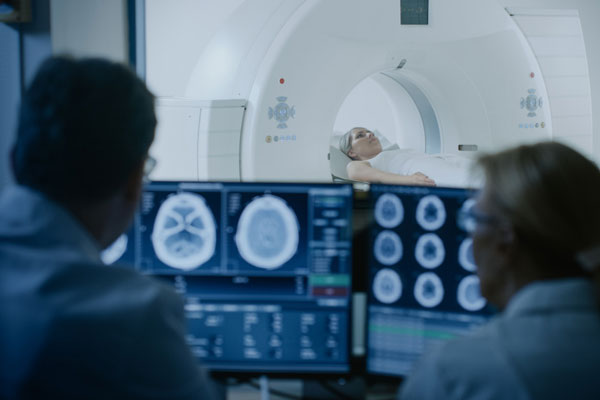
©Gorodenkoff - stock.adobe.com
Lecture • 04.10.2023 • Deutsches Museum Munich
7:00 pm - 8:30 pm
MCML Researcher Julia Moosbauer About AI in Medicine
Julia Moosbauer, Statistical Learning and Data Science, LMU Munich
Our MCML member Julia Moosbauer is giving a talk about AI in medicine at Deutsches Museum Munich. Her talk covers the question how patients and staff can profit from AI technology by looking at the …
29
Sep
Munich AI Lectures
2:15 pm - 3:30 pm
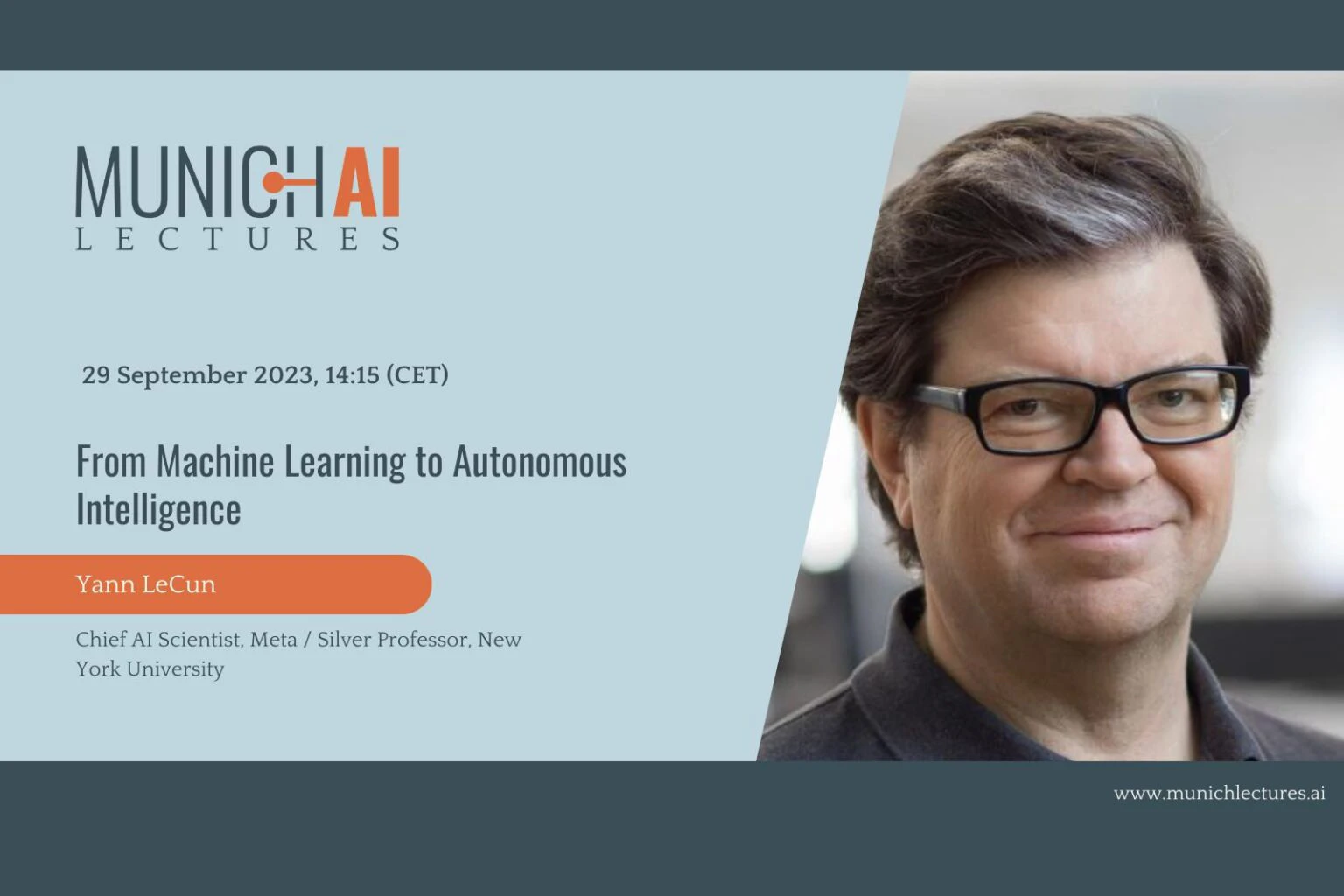
Munich AI Lectures • 29.09.2023 • BAdW, Alfons-Goppel-Str. 11, Munich, Plenarsaal
2:15 pm - 3:30 pm
From Machine Learning to Autonomous Intelligence
Yann LeCun, Courant Institute of Mathematical Sciences at New York University, Meta
How can machines learn like humans? Yann LeCun, Chief AI Scientist at Meta AI Research, outlines a path to autonomous agents using a modular architecture and a novel training paradigm. Emphasizing a …
28
Sep
Colloquium
10:15 am - 11:45 am

Colloquium • 28.09.2023 • LMU Munich, Department of Statistics and via zoom
10:15 am - 11:45 am
StatTag and StatWrap for Conducting Collaborative Reproducible Research
Leah J. Welty, Northwestern University, Chicago
Reproducible research is challenging in diverse teams with varied tools. This talk introduces StatTag and StatWrap, addressing collaboration hurdles. StatTag integrates Word with statistical code, …
14
Sep
Lecture
3:00 pm - 4:30 pm
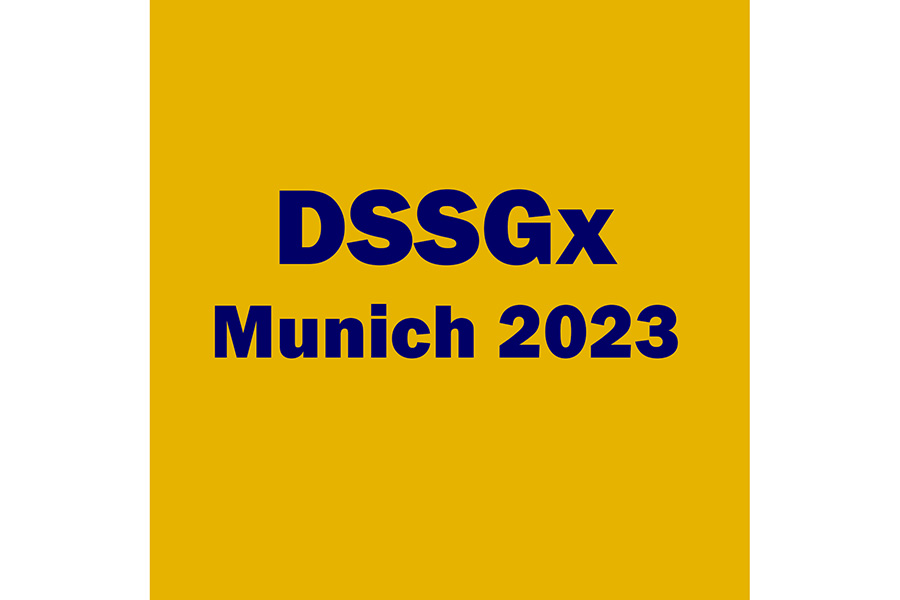
Lecture • 14.09.2023 • LMU Munich, Department of Statistics
3:00 pm - 4:30 pm
Open Science @MCML
Moritz Hermann, LMU Munich and MCML Open Science Transfer Coordinator
MCML’s Open Science Transfer Coordinator, Moritz Herrmann, works to enhance accessibility and transparency in machine learning research. Providing support on reproducibility, he aims to …
31
Aug
Lecture
3:00 pm - 4:30 pm

Lecture • 31.08.2023 • LMU Munich, Department of Statistics
3:00 pm - 4:30 pm
Responsible AI to Benefit Society
Kit Rodolfa, Research Director at Stanford's RegLab
Kit Rodolfa, Research Director at Stanford’s RegLab, bridges machine learning and public policy to modernize government. Focused on bias, fairness, and interpretability of ML methods, his …
27
Jul
AI Keynote Series
5:00 pm - 6:30 pm

AI Keynote Series • 27.07.2023 • LMU Munich, Institute of AI in Management via zoom
5:00 pm - 6:30 pm
InnoVAE: Generative AI for Understanding Patents and Innovation
Dokyun Lee, Boston University
The presentation demonstrates how ‘InnoVAE,’ a generative model, guides managerial decisions with unstructured data. Converting patent text into an interpretable ‘Innovation …
27
Jul
Lecture
2:30 pm - 5:00 pm

Lecture • 27.07.2023 • LMU Munich, Akademiestr. 7, Room 105
2:30 pm - 5:00 pm
Imagining the Road Ahead (ITRA) 0.0 -> 1.0 -> 2.0 - The Ongoing Evolution of the GPT of Behavior for Autonomous Vehicle Applications
Frank Wood, LMU Munich, UBC Vancouver
The talk presents the UBC PLAI group and Inverted AI’s novel work on using foundation models and amortized inference for behavior, image, and video processing, with a particular emphasis on ITRA, a …
27
Jul
Colloquium
10:00 am - 11:30 am

Colloquium • 27.07.2023 • LMU Munich, Department of Statistics and via zoom
10:00 am - 11:30 am
Mean Field Variational Bayes for Finite Mixture of Random Coefficients Models
Anoop Chaturvedi, University of Allahabad, India
For over three decades, random coefficient models, especially for panel data, have been prevalent. Categorical random coefficient models relate to finite mixtures of normal regressions. The talk …
20
Jul
AI Keynote Series
6:00 pm - 7:30 pm

AI Keynote Series • 20.07.2023 • LMU Munich, Institute of AI in Management via zoom
6:00 pm - 7:30 pm
Applied Causal Inference With Surrogate Representation
Lu Cheng, University of Illinois, Chicago
The presence of unobserved confounders poses a fundamental challenge in causal inference using observational data. To tackle this challenge, the ignorable treatment assignment assumption is often …
14
Jul
Munich AI Lectures
3:00 pm - 4:30 pm
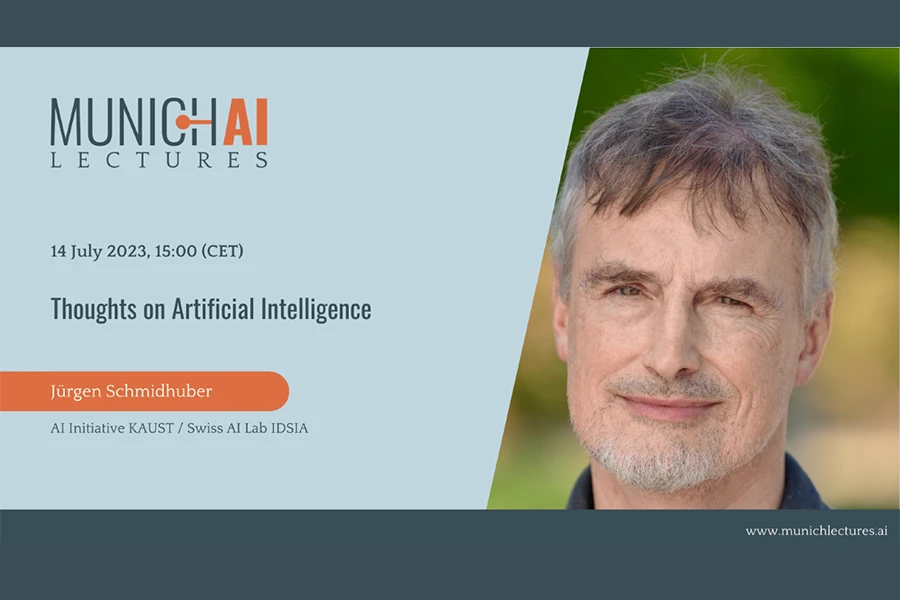
Munich AI Lectures • 14.07.2023 • LMU Munich, Audimax
3:00 pm - 4:30 pm
Thoughts on Artificial Intelligence
Jürgen Schmidhuber, KAUST, Swiss AI Lab, NNAISENSE
Jürgen Schimdhuber is one of leading AI researchers worldwide. Since the 1980s he pioneered the principle of generative adversarial networks, artificial curiosity, transformers with linearized …
13
Jul
Colloquium
4:15 pm - 5:45 pm

Colloquium • 13.07.2023 • LMU Munich, Department of Statistics and via zoom
4:15 pm - 5:45 pm
Challenges in Modern Statistical Network Analysis: Data Collection and Covariate Effect Assessments
Cornelius Fritz, Pennsylvania State University
Recent advances in statistical network analysis address challenges posed by network data, deviating from traditional regression models. This talk introduces durational event models for instantaneous …
28
Jun
Lecture Series
5:00 pm - 6:30 pm

Lecture Series • 28.06.2023 • Online
5:00 pm - 6:30 pm
Artificial Intelligence in Culture and Arts: Maximilian Blaschke
Module 3: Culture Business and Creative Industries
Explore the impact of Artificial Intelligence in various fields, with a focus on artist management and organizational tasks. Maximilian Blaschke, TU Munich, discusses use cases, trends, and the …
28
Jun
Colloquium
4:15 pm - 5:45 pm

Colloquium • 28.06.2023 • LMU Munich, Department of Statistics and via zoom
4:15 pm - 5:45 pm
Implicit Models, Latent Compression, Intrinsic Biases, and Cheap Lunches in Community Detection in Networks
Tiago De Paula Peixoto, Central European University, Wien
This talk compares inferential and descriptive community detection algorithms on a principled scale. It associates each objective with an implicit generative model, enabling the computation of the …
21
Jun
Lecture
6:00 pm - 7:30 pm

Lecture • 21.06.2023 • LMU Munich
6:00 pm - 7:30 pm
Humans or AI: Who Emerges as the Winner?
Inaugural Lecture of Our PI Stefan Feurriegel
In his inaugural lecture as a professor at LMU Institute of AI in Management, our PI Stefan Feurriegel will speak in German on the topic of Humans or AI: Who emerges as the winner? The focus of his …
21
Jun
Lecture Series
5:00 pm - 6:30 pm

Lecture Series • 21.06.2023 • Online
5:00 pm - 6:30 pm
Artificial Intelligence in Culture and Arts: Armin Berger
Module 3: Culture Business and Creative Industries
Armin Berger, 3pc discusses the use of AI for knowledge workers, editors, and culture enthusiasts to enhance data and digital exhibits accessibility. The AI-supported storytelling system enables users …
21
Jun
Colloquium
4:15 pm - 5:45 pm

Colloquium • 21.06.2023 • LMU Munich, Department of Statistics and via zoom
4:15 pm - 5:45 pm
Rank-Based Support Vector Machines for Highly Imbalanced Data Using Nominated Samples
Mohammad Jafari Jozani, University of Manitoba, Winnipeg, Canada
The talk proposes a novel approach, MaxNS, that tackles highly imbalanced binary classification using expert opinions and rank information. Biasing training samples towards the minority class, it …
15
Jun
AI Keynote Series
6:00 pm - 7:30 pm

AI Keynote Series • 15.06.2023 • LMU Munich, Institute of AI in Management via zoom
6:00 pm - 7:30 pm
Conformal Meta-Learners for Predictive Inference of Individual Treatment Effects
Ahmed M. Alaa, Berkley University of California
In the talk, ML and health databases enable personalized healthcare. Bayesian methods, using Gaussian processes, predict treatment effects. Model-free approaches, employing conformal prediction, offer …
14
Jun
Lecture Series
5:00 pm - 6:30 pm

Lecture Series • 14.06.2023 • Online
5:00 pm - 6:30 pm
Artificial Intelligence in Culture and Arts: Stephan Schneider
Module 3: Culture Business and Creative Industries
The lecture with Stephan Schneider, Technische Hochschule OWL, Fachhochschule ABWL Kiel, will provide an overview and insight into the possible uses and applications of AI in cultural institutions. …
14
Jun
Colloquium
4:15 pm - 5:45 pm

Colloquium • 14.06.2023 • LMU Munich, Department of Statistics and via zoom
4:15 pm - 5:45 pm
New Data, New Questions, New Problems? Online Behavioral Data Insocial Science Research
Ruben L. Bach, University of Mannheim
The talk discusses using online behavioral data in social science research, emphasizing integration with panel surveys to analyze political attitudes influenced by alternative news platforms. It …
12
Jun
Colloquium
3:00 pm - 4:30 pm

Colloquium • 12.06.2023 • LMU Munich, Department of Statistics and via zoom
3:00 pm - 4:30 pm
Generalized Data Thinning Using Sufficient Statistics
Jacob Bien, University of Southern California, LA
Sample splitting, a common tool in data science, faces limitations. A recent method, convolution-closed data thinning, offers an alternative when sample splitting isn’t feasible. This talk …
07
Jun
Lecture Series
5:00 pm - 6:30 pm

Lecture Series • 07.06.2023 • Online
5:00 pm - 6:30 pm
Artificial Intelligence in Culture and Arts: Yannick Hofmann
Module 3: Culture Business and Creative Industries
‘intelligent.museum’ at Deutsches Museum Nuremberg explores AI in exhibitions. Prototypes aim to demystify tech, foster ethical discussions, and enhance inclusivity. Yannick …
01
Jun
Colloquium
4:15 pm - 5:45 pm

Colloquium • 01.06.2023 • LMU Munich, Department of Statistics and via zoom
4:15 pm - 5:45 pm
V-Statistics and Variance Estimation: Inference for Random Forests and Other Ensembles
Giles Hooker, UC Berkeley
This talk discusses uncertainty quantification and inference using ensemble methods.
31
May
Lecture Series
5:00 pm - 6:30 pm

Lecture Series • 31.05.2023 • Online
5:00 pm - 6:30 pm
Artificial Intelligence in Culture and Arts: Jascha Viehstädt
Module 2: Performing Arts
Deep.Dance, an AI-created work by Jascha Viehstädt, investigates the boundaries of machine creativity. It raises questions about AI’s role in creative processes, exploring the potential and …
25
May
AI Keynote Series
6:00 pm - 7:30 pm

AI Keynote Series • 25.05.2023 • LMU Munich, Institute of AI in Management via zoom
6:00 pm - 7:30 pm
Estimating the Long-Term Effects of Novel Treatments
Vasilis Syrgkanis, Stanford University
Estimating long-term effects with limited historical data is challenging. This talk proposes a surrogate-based approach, combining techniques like surrogate indices, dynamic treatment effect …
24
May
Lecture Series
5:00 pm - 6:30 pm

Lecture Series • 24.05.2023 • Online
5:00 pm - 6:30 pm
Artificial Intelligence in Culture and Arts: Martin Grünheit
Module 2: Performing Arts
Martin Grünheit, Düsseldorfer Schauspielhaus, discusses the integration of Machine Learning in theater through projects like ‘Regie: KI’ and ‘HAUFEN UFFRUHR FORTSCHRITT.’ …
17
May
Lecture Series
5:00 pm - 6:30 pm

Lecture Series • 17.05.2023 • Online
5:00 pm - 6:30 pm
Artificial Intelligence in Culture and Arts: Sven Sören Beyer
Module 2: Performing Arts
Sven Sören Beyer, Berlin artist collective phase7 performing.arts, unveils ‘Chasing waterfalls - An AI Opera,’ a collaboration with phase7, Semperoper Dresden, and New Vision Performing …
10
May
Lecture Series
5:00 pm - 6:30 pm

Lecture Series • 10.05.2023 • Online
5:00 pm - 6:30 pm
Artificial Intelligence in Culture and Arts: Michael Käppler
Module 1: Music, Sound and Composition
Discover ‘Meistersinger reloaded,’ a unique collaboration producing a machine-generated composition inspired by Richard Wagner. Initiator Michael Käppler, Artistic Director Singakademie …
10
May
Colloquium
4:15 pm - 5:45 pm

Colloquium • 10.05.2023 • LMU Munich, Department of Statistics and via zoom
4:15 pm - 5:45 pm
Deriving Interpretable Thresholds for Variable Importance in Random Forests by Permutation
Maria Blanco, Staburo GmbH
Tim Müller, Staburo GmbH
Laura Schlieker, Staburo GmbH
Armin Ott, Staburo GmbH
Hannes Buchner, Staburo GmbH
In clinical research, discovering predictive biomarkers is vital for precision medicine. The authors propose a variation of Random Forests, categorizing variables as confirmed, tentative, or rejected. …
03
May
Lecture Series
5:00 pm - 6:30 pm

Lecture Series • 03.05.2023 • Online
5:00 pm - 6:30 pm
Artificial Intelligence in Culture and Arts: Nicola L. Hein
Module 1: Music, Sound and Composition
Explore the synergy of human and machine creativity in ‘Improvising Machines and Listening Humans’ by Nicola L. Hein, Professor at Musikhochschule Lübeck. Witness the artistic …
26
Apr
Lecture Series
5:00 pm - 6:30 pm

Lecture Series • 26.04.2023 • Online
5:00 pm - 6:30 pm
Artificial Intelligence in Culture and Arts: Ali Nikrang
Module 1: Music, Sound and Composition
Discover the workings of Creative AI, comparing its strengths and weaknesses with human creativity with Ali Nikrang, Ars Electronica Futurelab Linz. Explore its potential for artistic purposes, …
19
Apr
Lecture Series
5:00 pm - 6:30 pm

Lecture Series • 19.04.2023 • Online
5:00 pm - 6:30 pm
Artificial Intelligence in Culture and Arts: Artemi-Maria Gioti
Module 1: Music, Sound and Composition
Explore real-time interaction between human musicians and computer music systems in this lecture. Artemi-Maria Gioti, Hochschule für Musik Carl Maria von Weber Dresden, delves into distributed …
12
Apr
Lecture Series
5:00 pm - 6:30 pm

Lecture Series • 12.04.2023 • Online
5:00 pm - 6:30 pm
Artificial Intelligence in Culture and Arts
Introductory Lecture With Tabea Golgath
The introductory lecture with Tabea Golgath, Project manager for ‘LINK - KI und Kultur’ program of the Lower Saxony Foundation, will cover the basics of the ‘black box’ AI. …
22
Mar
Colloquium
4:15 pm - 5:45 pm

Colloquium • 22.03.2023 • LMU Munich, Department of Statistics and via zoom
4:15 pm - 5:45 pm
Modeling Biomarker Ratios With Gamma Distributed Components
Matthias Schmid, University of Bonn
The talk introduces a regression model termed “extended GB2 model”, which is designed to analyze ratios of biomarkers in epidemiological and medical research.
08
Mar
Munich AI Lectures
5:00 pm - 6:30 pm
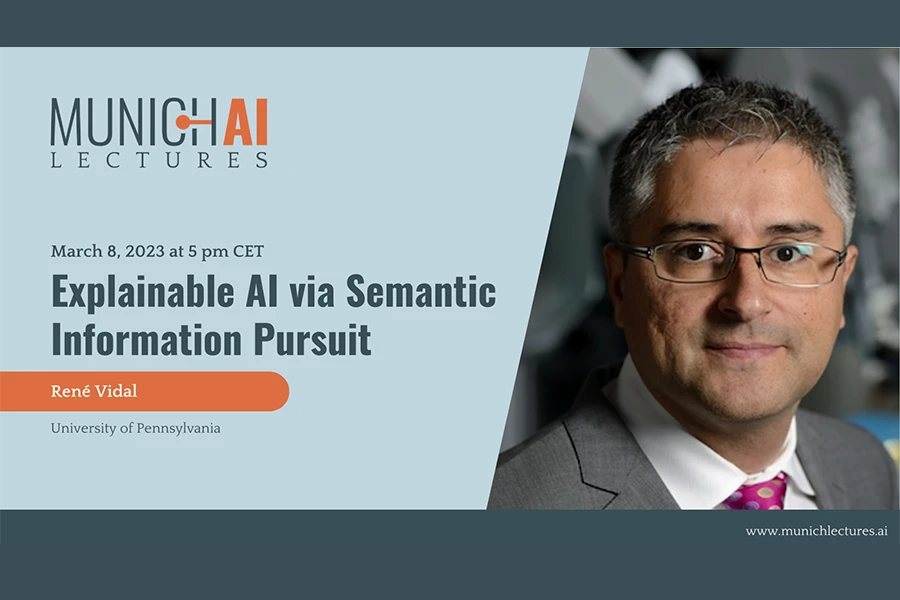
Munich AI Lectures • 08.03.2023 • Livestream on YouTube
5:00 pm - 6:30 pm
Explainable AI via Semantic Information Pursuit
René Vidal, John Hopkins University
There is a significant interest in developing ML algorithms whose final predictions can be explained in terms understandable to a human. To address this challenge, we develop a method for constructing …
15
Feb
Colloquium
4:15 pm - 5:45 pm

Colloquium • 15.02.2023 • LMU Munich, Department of Statistics and via zoom
4:15 pm - 5:45 pm
Assessing Goodness of Fit for Network Models
Gesine Reinert, University of Oxford
Networks are often used to represent complex dependencies in data, and network models can aid the understanding of such dependencies. This talk will present network models. We shall introduce a …
14
Feb
TUM Distinguished Lecture Series on AI & Healthcare
4:00 pm - 6:00 pm
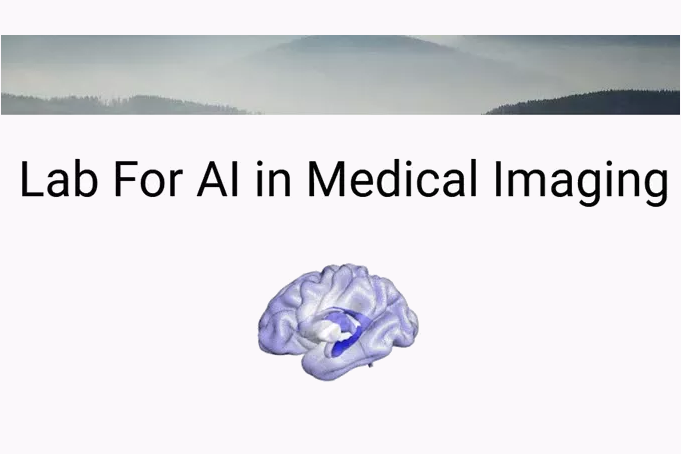
TUM Distinguished Lecture Series on AI & Healthcare • 14.02.2023 • Zoom
4:00 pm - 6:00 pm
Learning to Read Xray: Applications to Heart Failure Monitoring
Polina Golland, Massachusetts Institute of Technology
We propose a novel method for image classification using limited labels. Leveraging radiology reports, we create a multimodal embedding for classification, demonstrated in assessing pulmonary edema …
09
Feb
AI Keynote Series
12:00 pm - 1:30 pm

AI Keynote Series • 09.02.2023 • LMU Munich, Institute of AI in Management via zoom
12:00 pm - 1:30 pm
Electricity Load Forecasting Using the Temporal Fusion Transformer
Konstantin Hopf, University of Bamberg
The energy transition’s challenges demand precise load forecasts for distribution grids. This study assesses the Temporal Fusion Transformer (TFT) performance in short-term electricity load …
08
Feb
Munich AI Lectures
5:00 pm - 7:00 pm
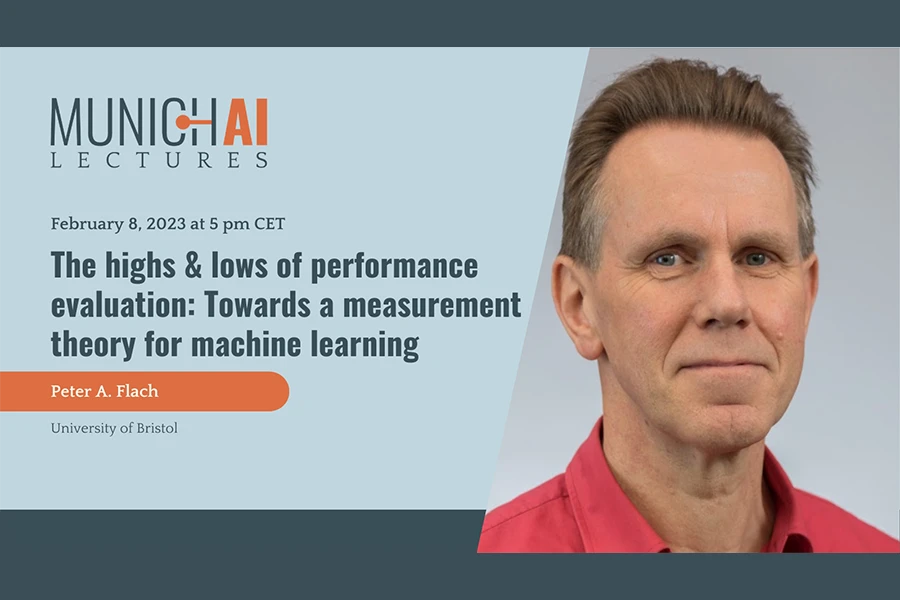
Munich AI Lectures • 08.02.2023 • Livestream on YouTube
5:00 pm - 7:00 pm
The Highs and Lows of Performance Evaluation: Towards a Measurement Theory for Machine Learning
Peter Flach, University of Bristol
The understanding of performance evaluation measures for machine-learned classifiers has progressed, but gaps persist, leading to questionable evaluation practices. This raises concerns about the …
08
Feb
Colloquium
4:15 pm - 5:45 pm

Colloquium • 08.02.2023 • LMU Munich, Department of Statistics and via zoom
4:15 pm - 5:45 pm
The Generalized Linear Mixed Model Leading Terms
Matt Wand, University of Technology, Sydney
Generalized linear mixed models (GLMMs) combine linear mixed models and generalized linear models. Despite their widespread use, there’s limited asymptotic theory for their maximum likelihood …
16
Nov
Colloquium
4:15 pm - 5:45 pm

Colloquium • 16.11.2022 • LMU Munich, Department of Statistics and via zoom
4:15 pm - 5:45 pm
Current Research Projects in the Statistics and Econometrics Group
Daniel Wilhelm, Departement of Statistics, LMU Munich
This talk first provides an overview of research projects in the Statistics and Econometrics Group and then discusses selected projects in more detail. Topics include identification of measurement …
04
May
Munich AI Lectures
5:00 pm - 6:30 pm
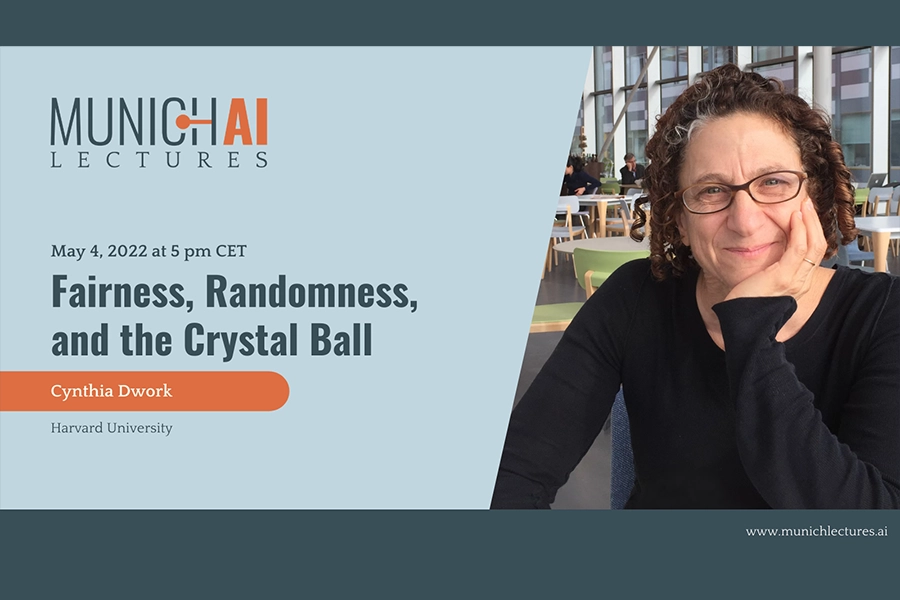
Munich AI Lectures • 04.05.2022 • Livestream on YouTube
5:00 pm - 6:30 pm
Fairness, Randomness, and the Crystal Ball
Cynthia Dwork, Harvard University
Prediction algorithms score individuals, or individual instances, assigning to each one a number in the range from 0 to 1. That score is often interpreted as a probability: What are the chances that …
08
Feb
LMU KI Lecture Series
6:15 pm - 7:45 pm
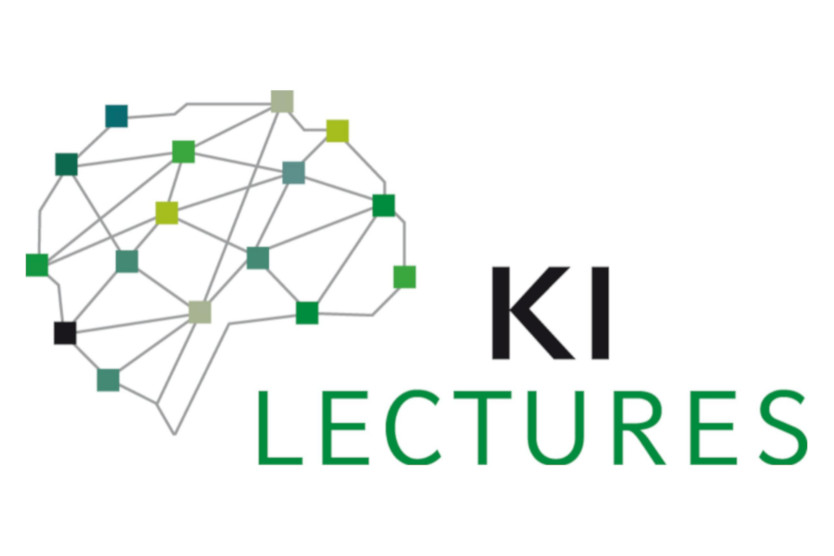
LMU KI Lecture Series • 08.02.2022 • Virtual
6:15 pm - 7:45 pm
Artificial Intelligence – A Look Towards Future Developments
Join Our Director Thomas Seidl at the LMU AI Lecture Series
In his lecture, Thomas Seidl, Professor of Computer Science at LMU, will talk about the latest developments in artificial intelligence. Besides reflecting on the terminology and limitations of …
25
Jan
LMU KI Lecture Series
6:15 pm - 7:45 pm

LMU KI Lecture Series • 25.01.2022 • Virtual
6:15 pm - 7:45 pm
Data-Driven Policy Decisions
Join Our PI Helmut Küchenhoff at the LMU AI Lecture Series
In data-based decision-making in the field of statistics, methods classified as artificial intelligence play an important role. In his lecture, Helmut Küchenhoff, Professor of Statistics at the …
11
Jan
LMU KI Lecture Series
6:15 pm - 7:45 pm

LMU KI Lecture Series • 11.01.2022 • Virtual
6:15 pm - 7:45 pm
The Universe in the Machine Brain: Artificial Intelligence in Cosmology
Join Professor Daniel Grün at the LMU AI Lecture Series
Professor Daniel Grün, Chair of Astrophysics, Cosmology and Artificial Intelligence in the Faculty of Physics at LMU, will use his AI Lecture to explain the importance of special architectures and …
30
Nov
LMU KI Lecture Series
6:15 pm - 6:15 pm

LMU KI Lecture Series • 30.11.2021 • Virtual
6:15 pm - 6:15 pm
Reconstructing the Masterpieces of Ancient Near Eastern Literature With the Help of Artificial Intelligence
Join Professor Enrique Jiménez at the LMU AI Lecture Series
The aim of the project “Electronic Babylonian Literature” (eBL), funded by the Humboldt Foundation, is to develop digital tools that automate, and thus dramatically accelerate, the process …
16
Nov
LMU AI Lecture Series
6:15 pm - 7:45 pm

LMU AI Lecture Series • 16.11.2021 • Virtual
6:15 pm - 7:45 pm
Who Decides What Counts? AI and Big Data: Applications in Economic and Social Science Research
Join Our PI Frauke Kreuter at the LMU AI Lecture Series
This talk outlines recent developments in the use of AI and Big Data in economic and social research. Frauke Kreuter, Chair of Statistics and Data Science in Social Sciences and the Humanities at LMU …
02
Nov
LMU AI Lecture Series
6:15 pm - 7:45 pm

LMU AI Lecture Series • 02.11.2021 • Virtual
6:15 pm - 7:45 pm
Artificial Intelligence in Medicine: Short-Lived Hype or the Start of a New Era?
Join Professor Nikolaos Koutsouleris at the LMU AI Lecture Series
Nikolaos Koutsouleris, Professor of Precision Psychiatry at LMU Munich and King’s College London, will cover the latest developments in AI techniques in clinical neuroscience in this lecture and take …
19
Oct
LMU AI Lecture Series
6:15 pm - 7:45 pm

LMU AI Lecture Series • 19.10.2021 • Virtual
6:15 pm - 7:45 pm
Insights Into Artificial Intelligence: Understanding and Explaining Decisions
Join Our PI Gitta Kutynik at the LMU AI Lecture Series
In her lecture, Professor Gitta Kutyniok, Chair for Mathematical Foundations of Artificial Intelligence at LMU Munich, starts by giving an introduction to artificial intelligence and explaining why …
